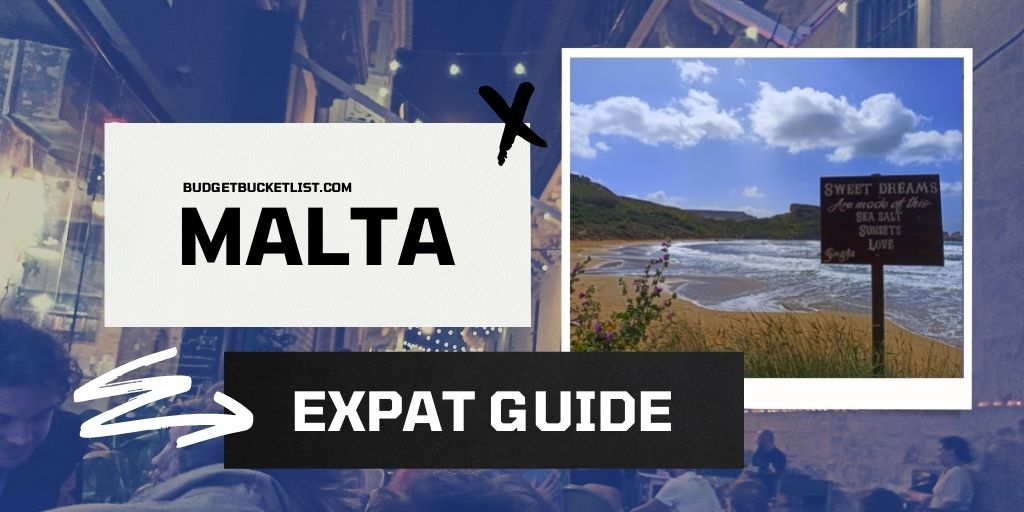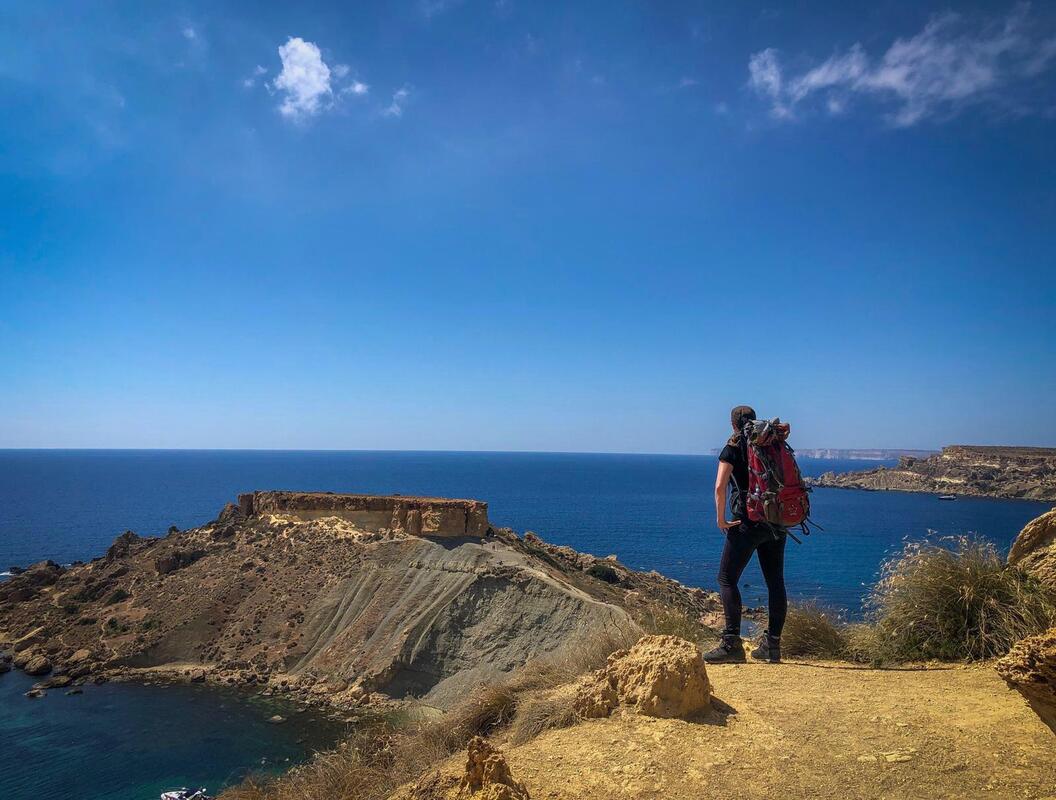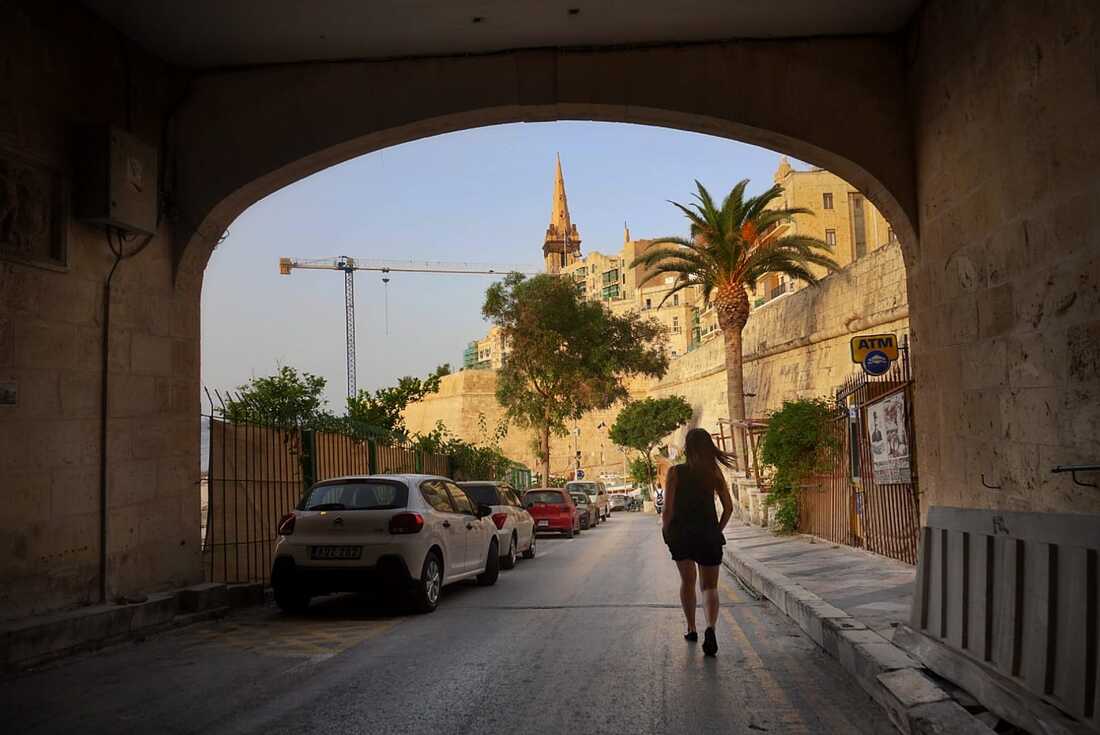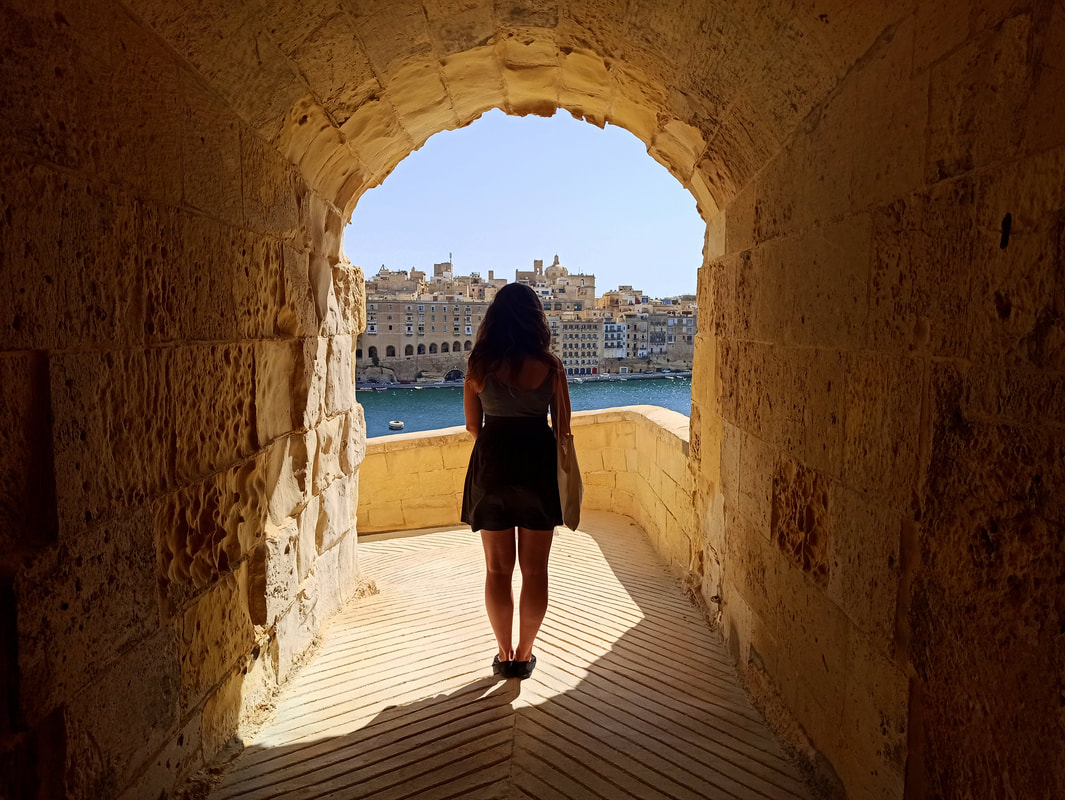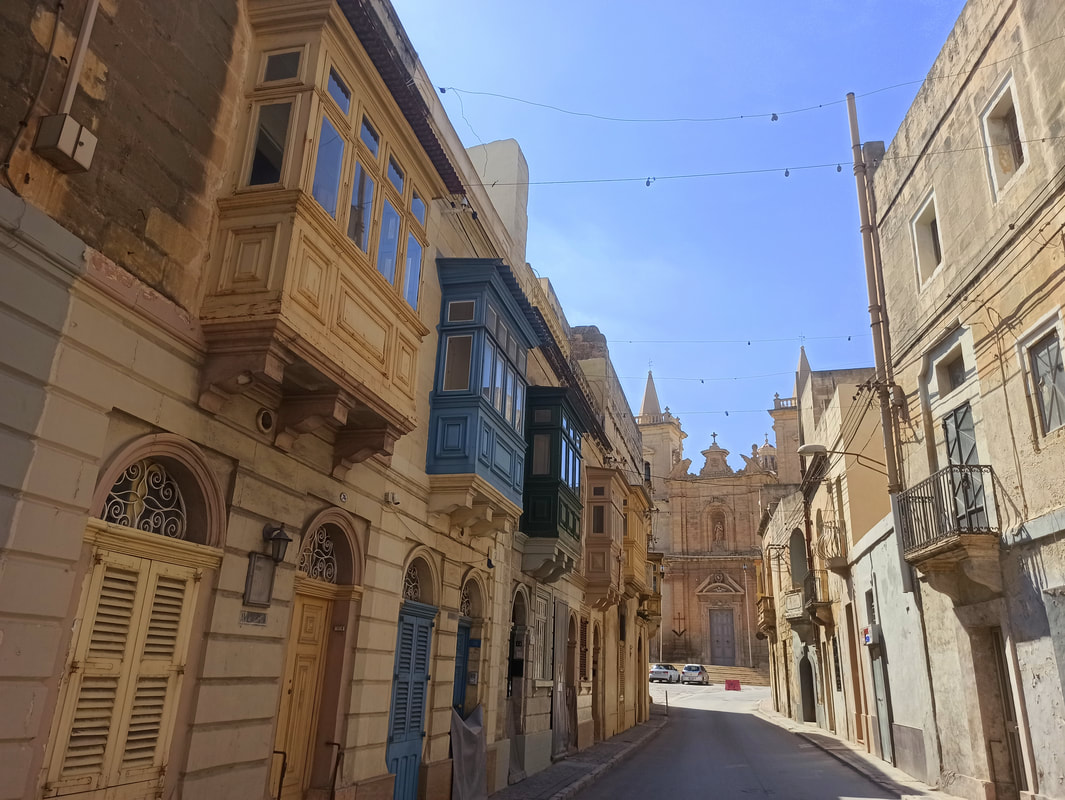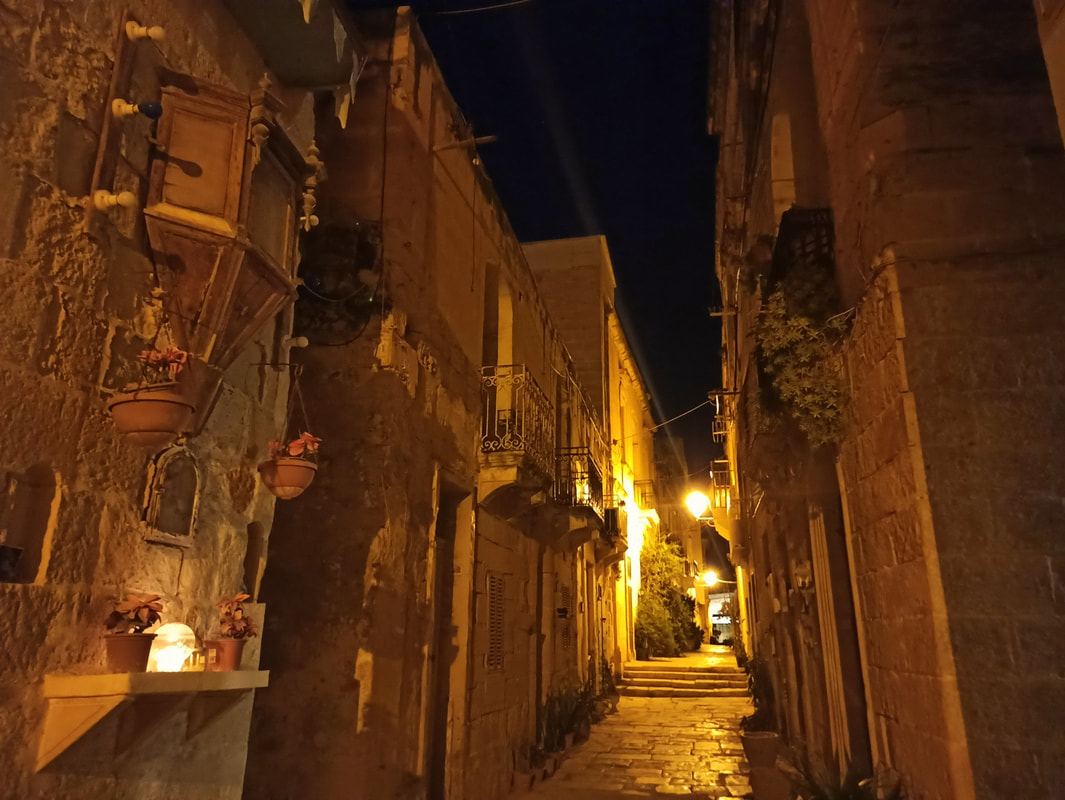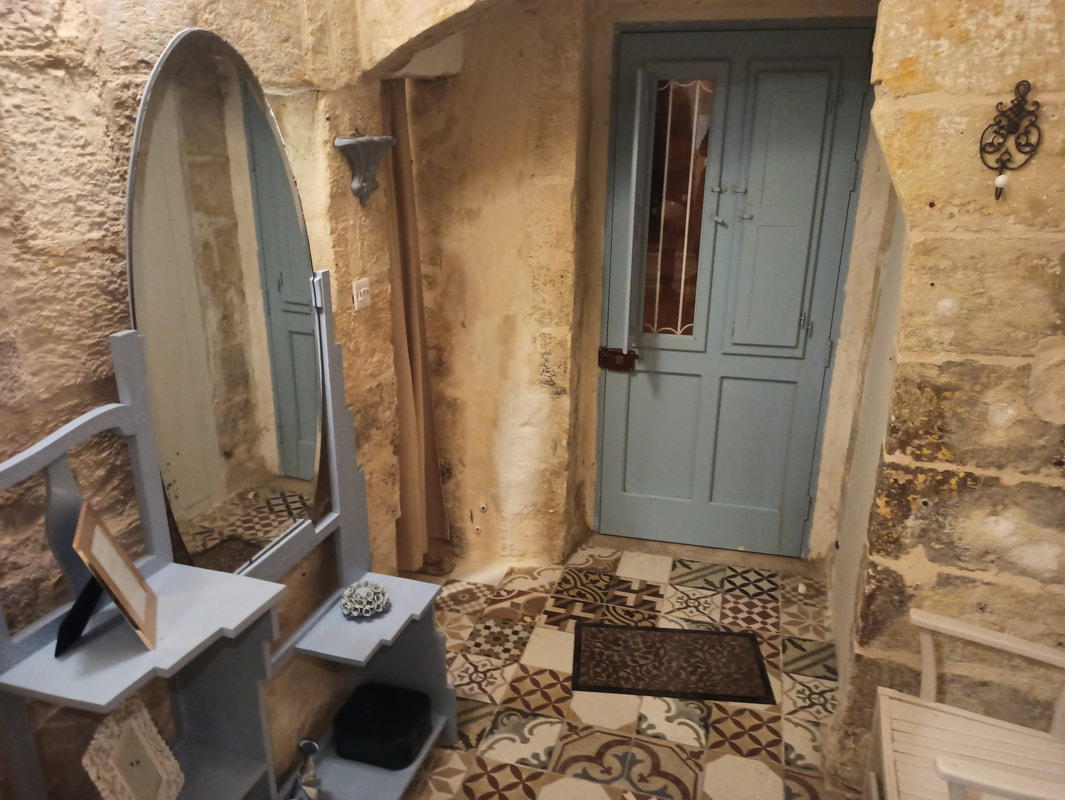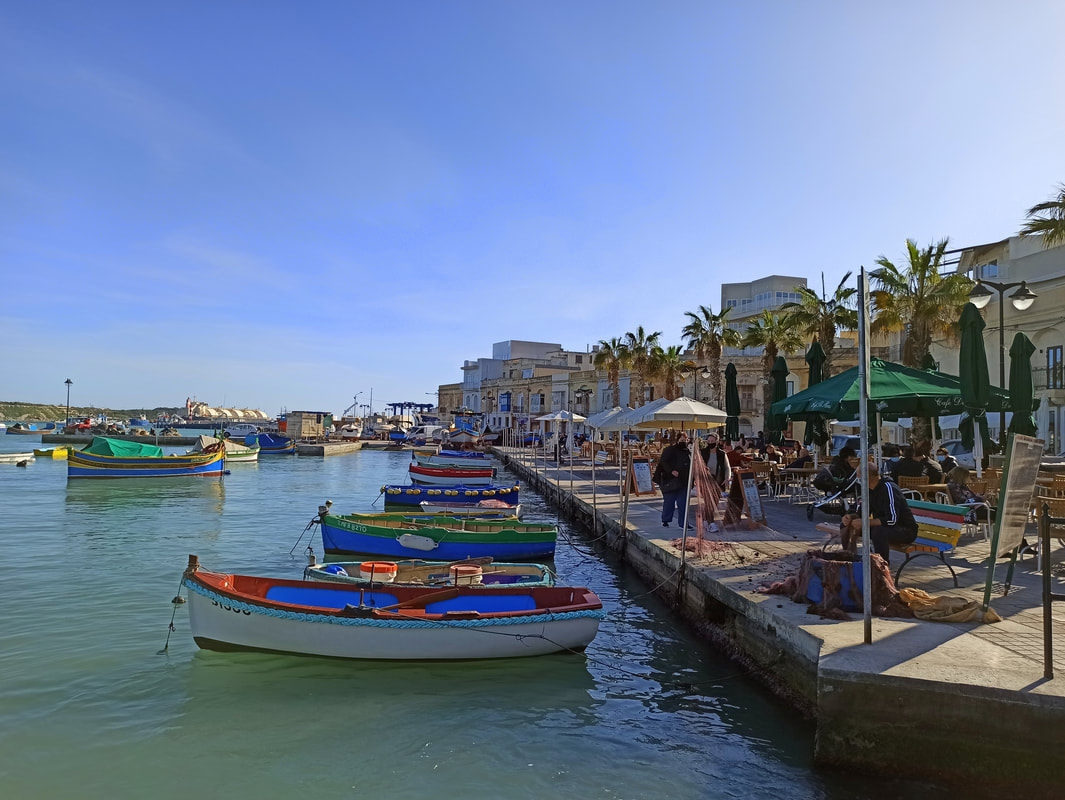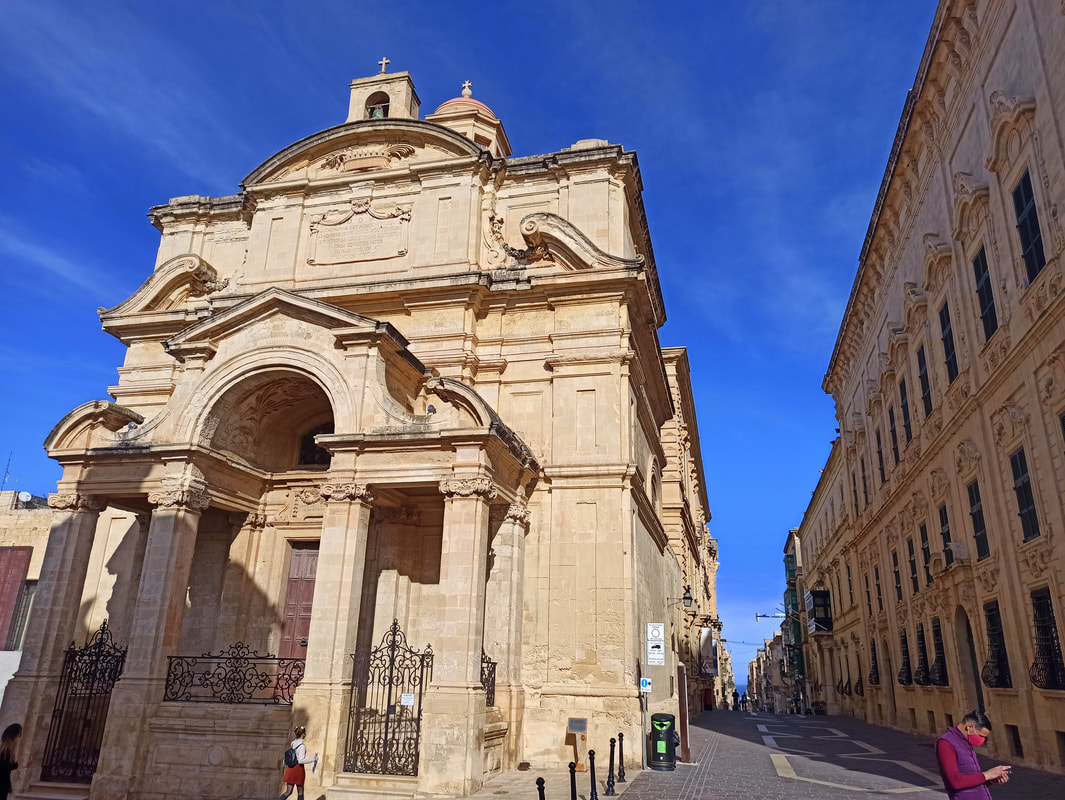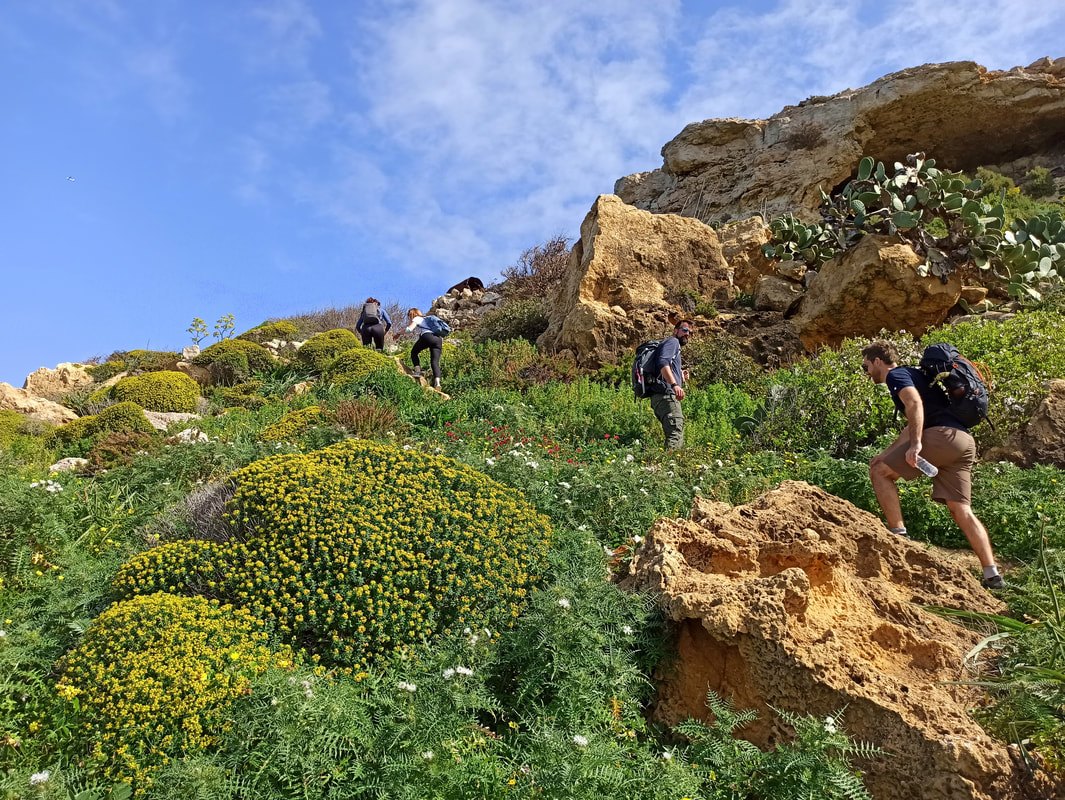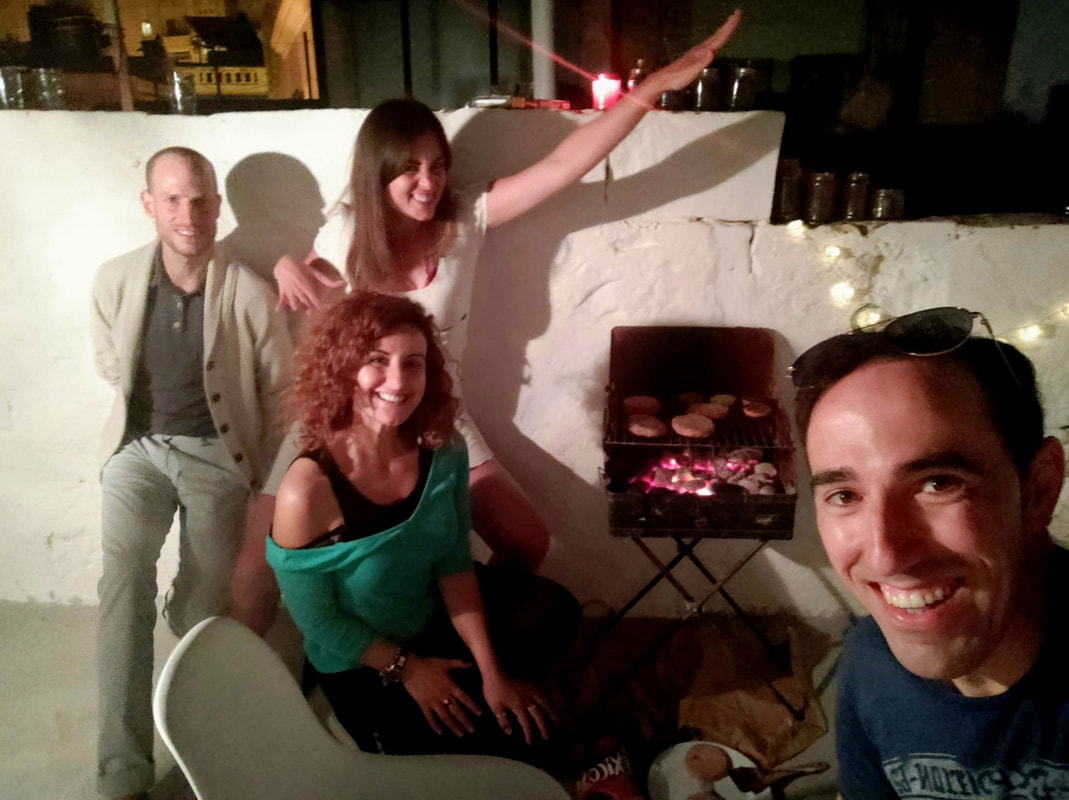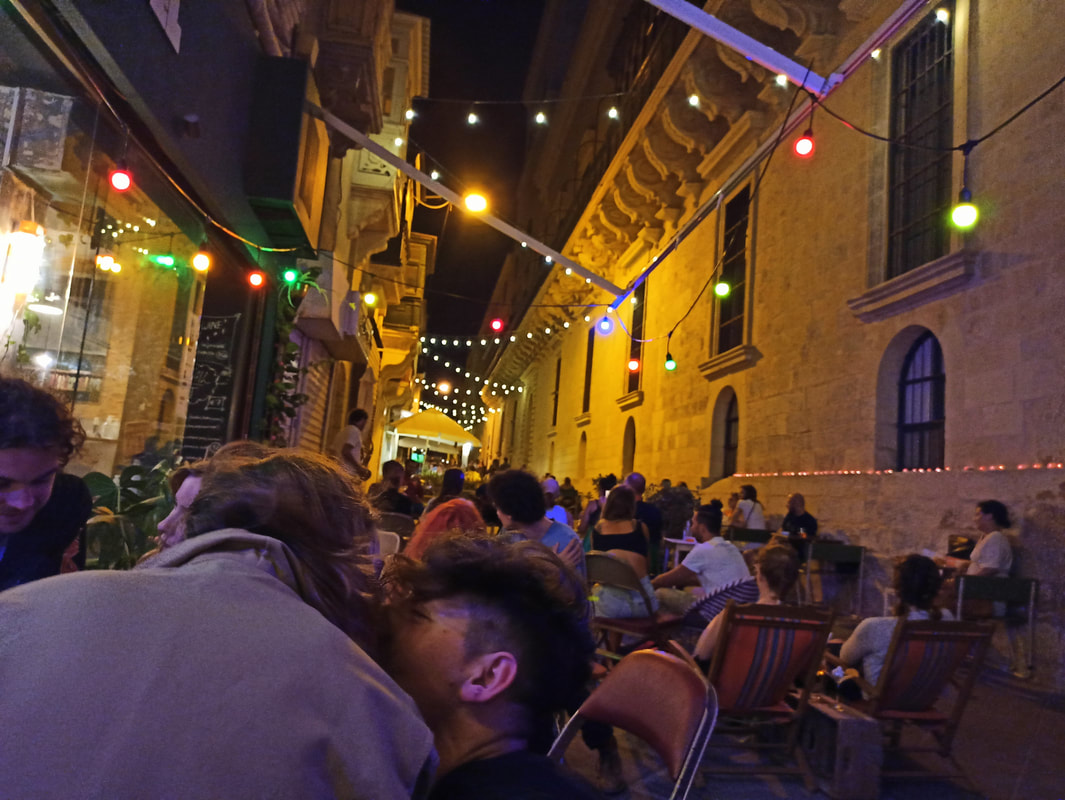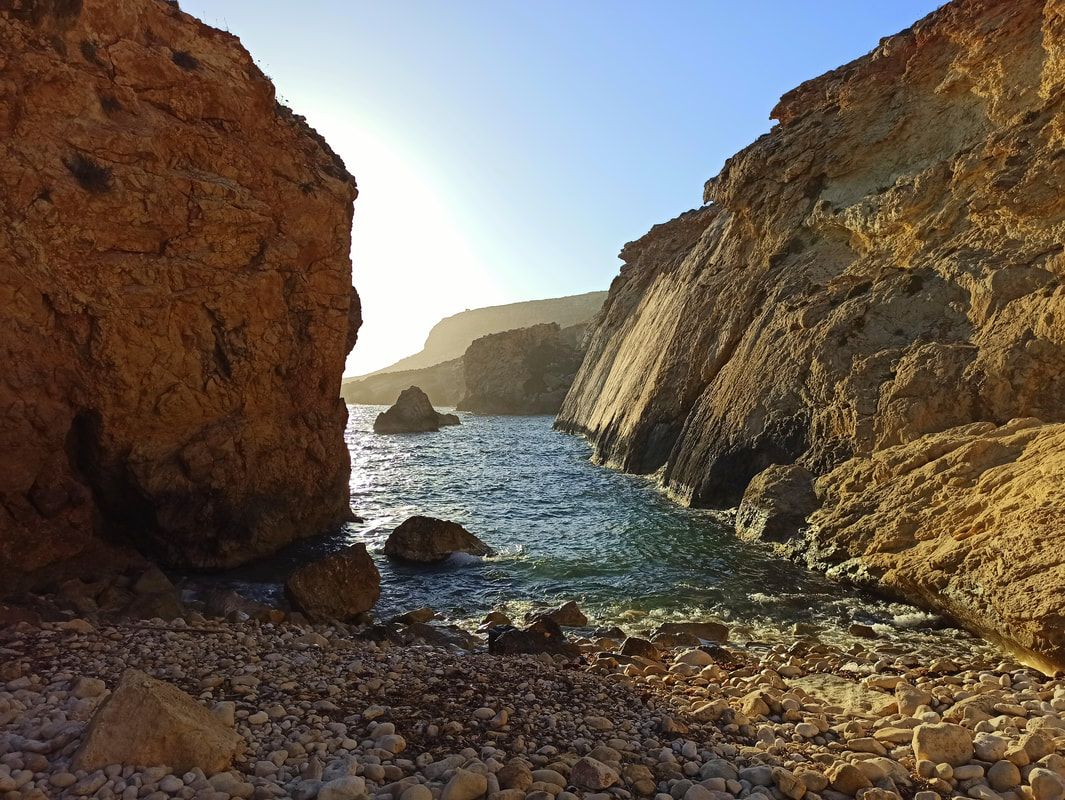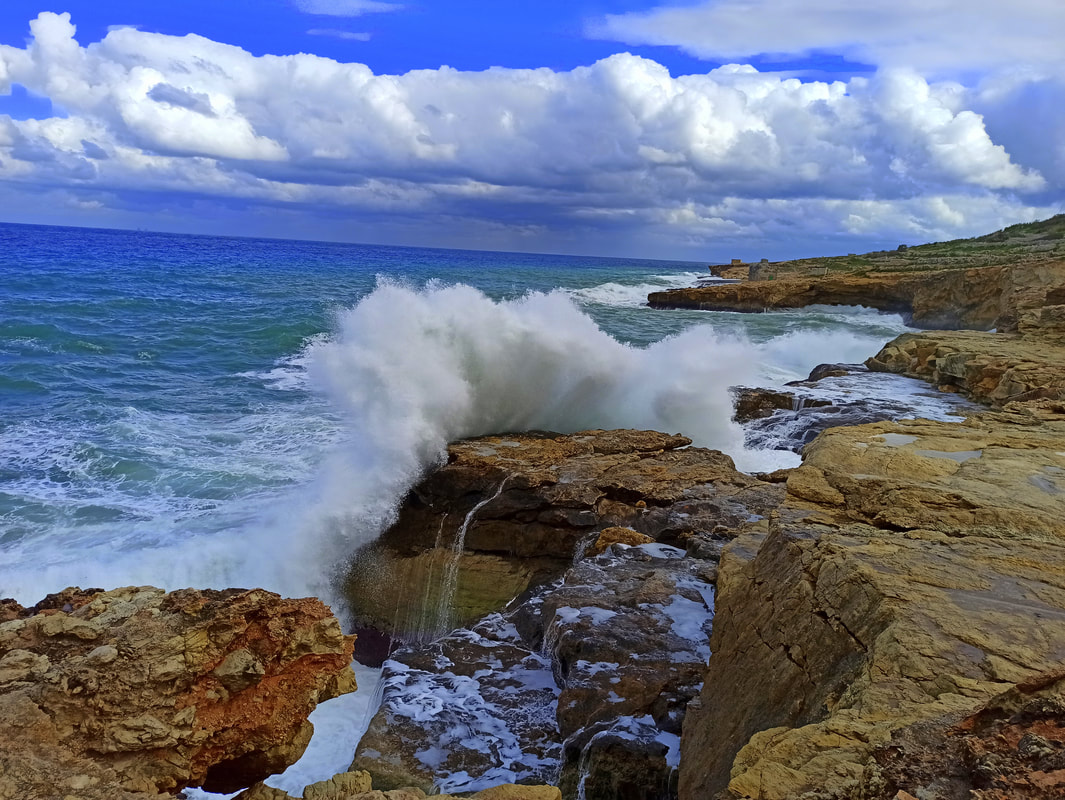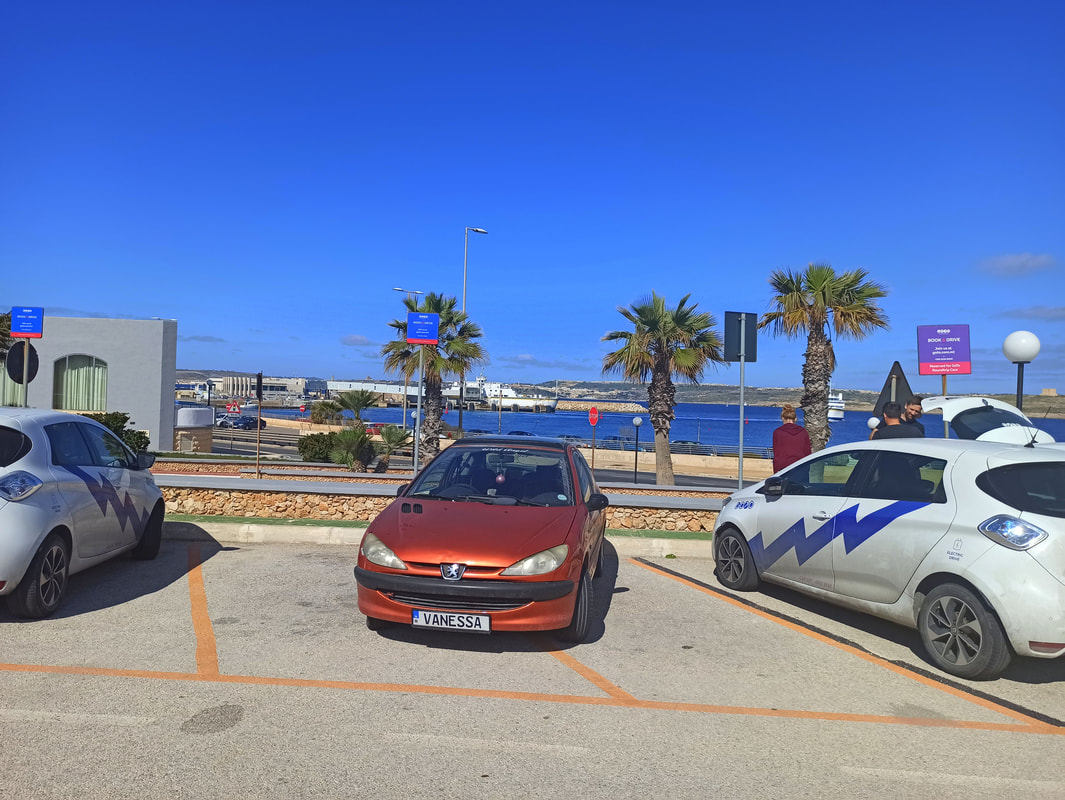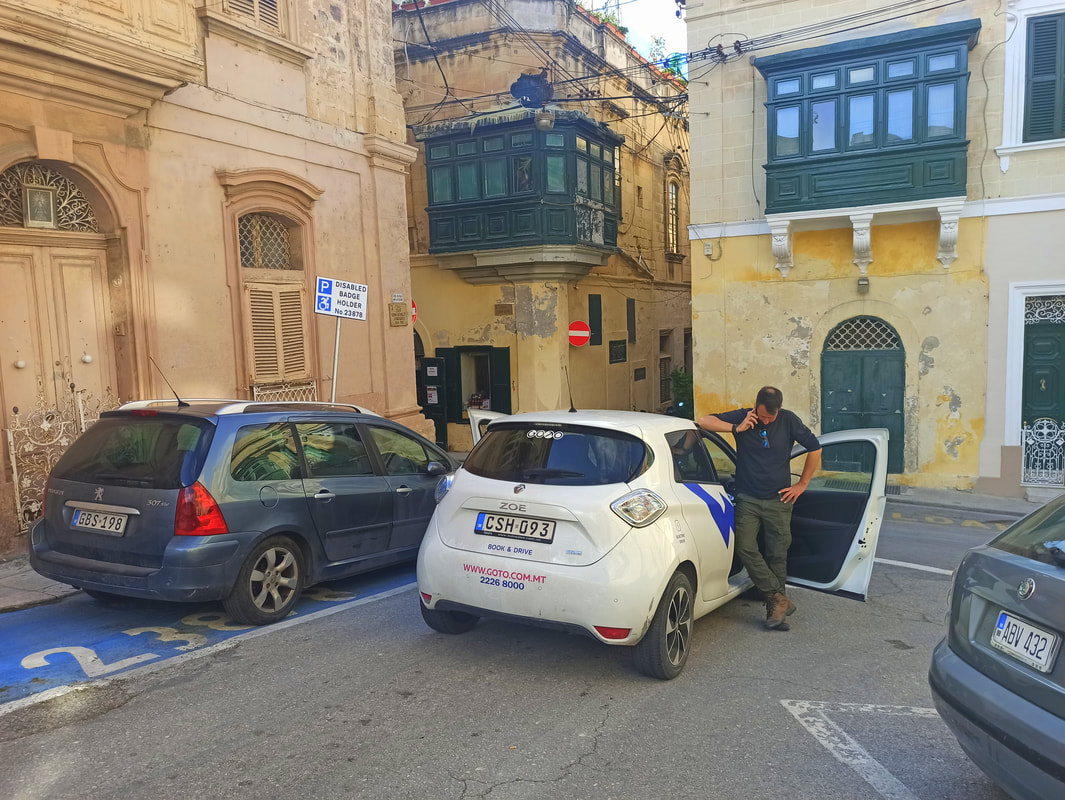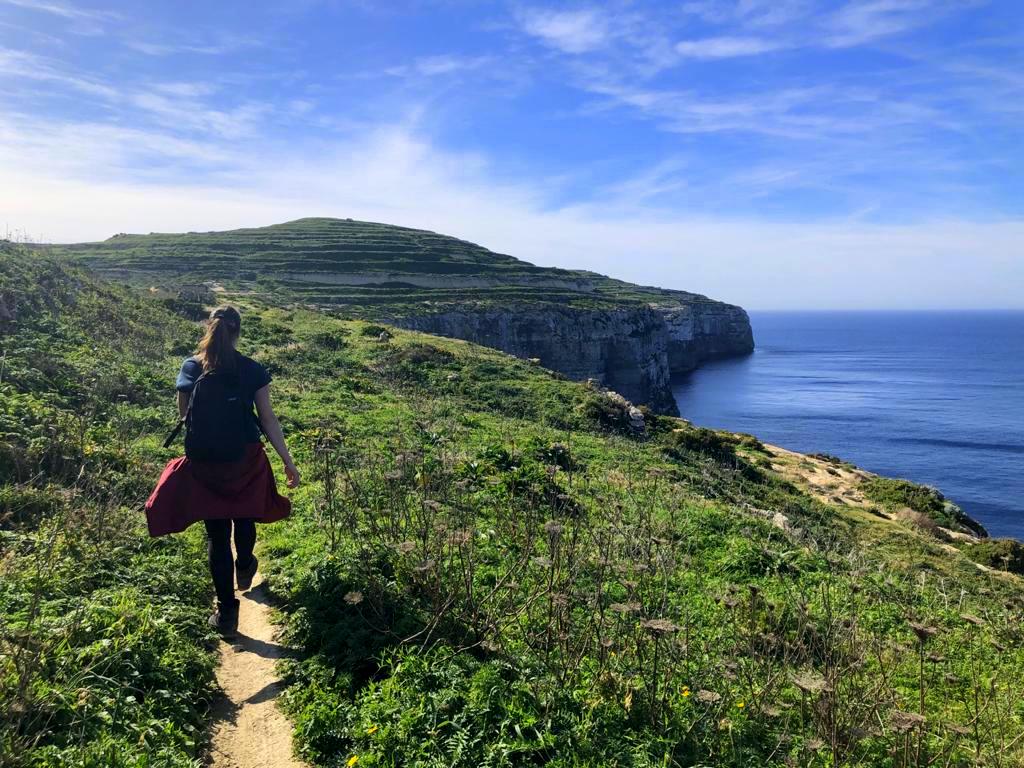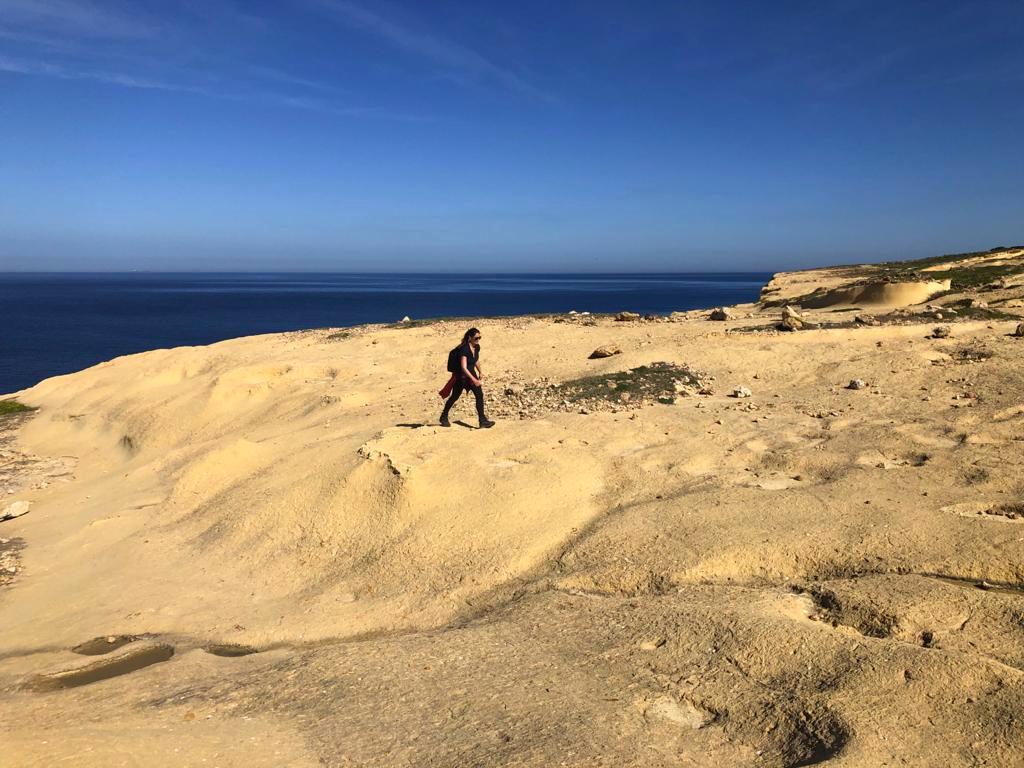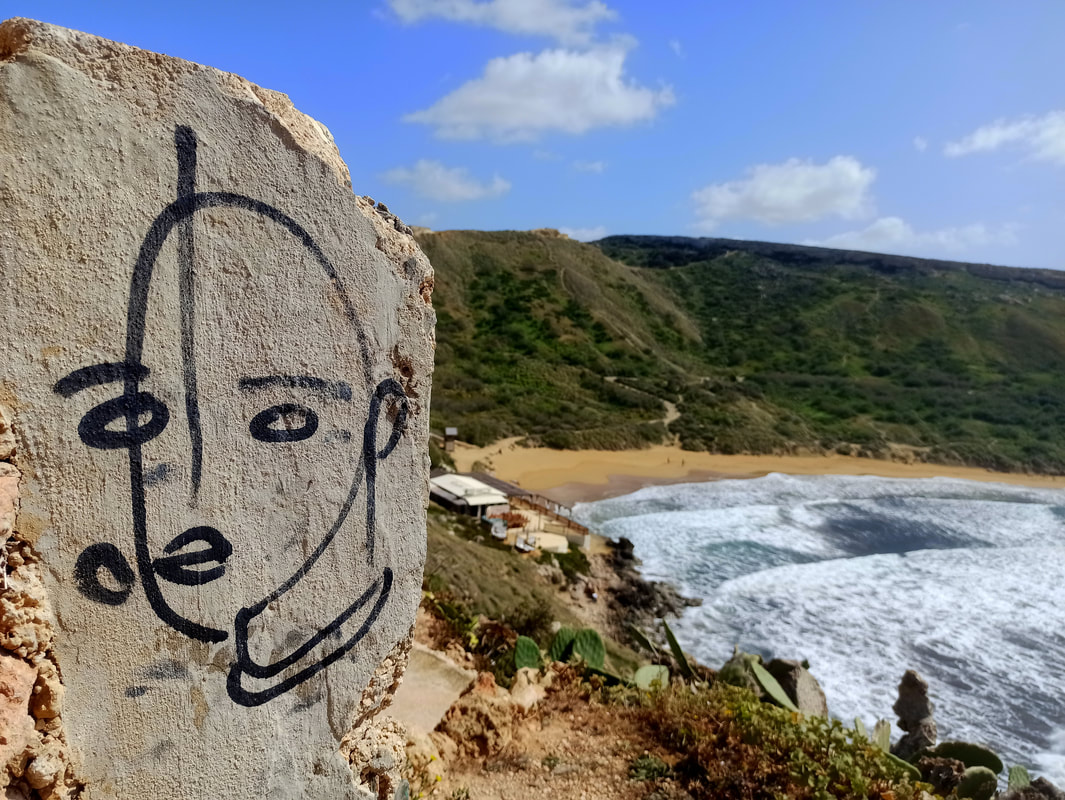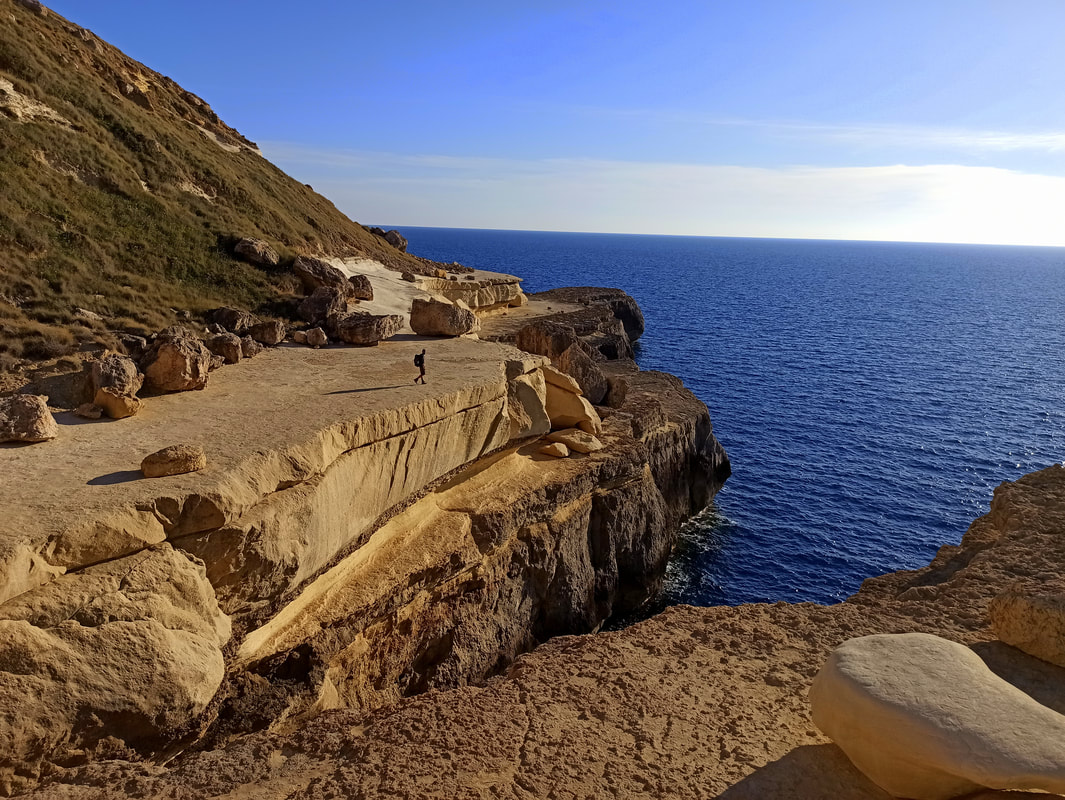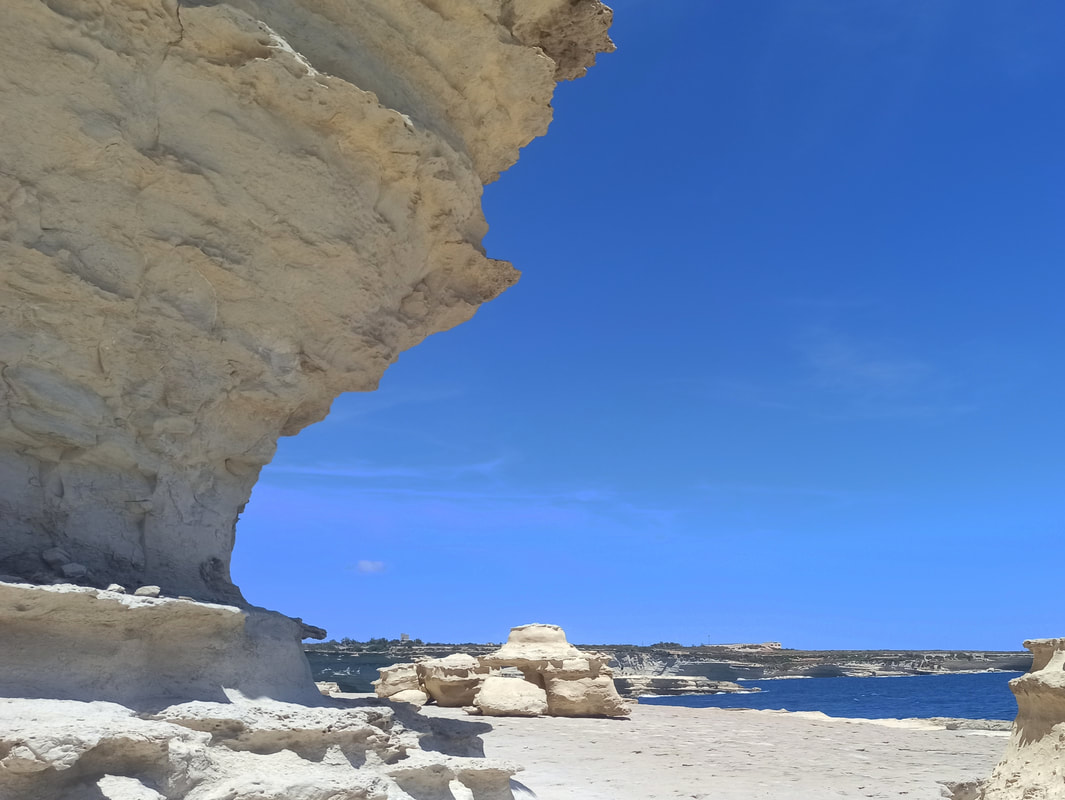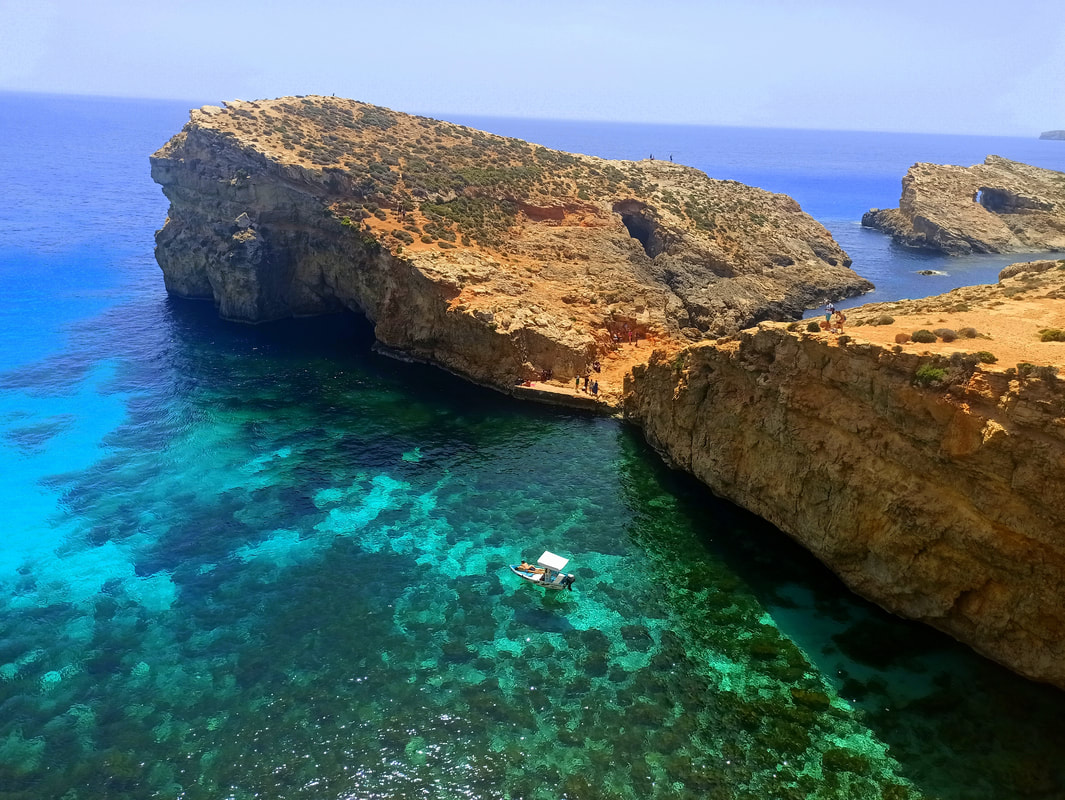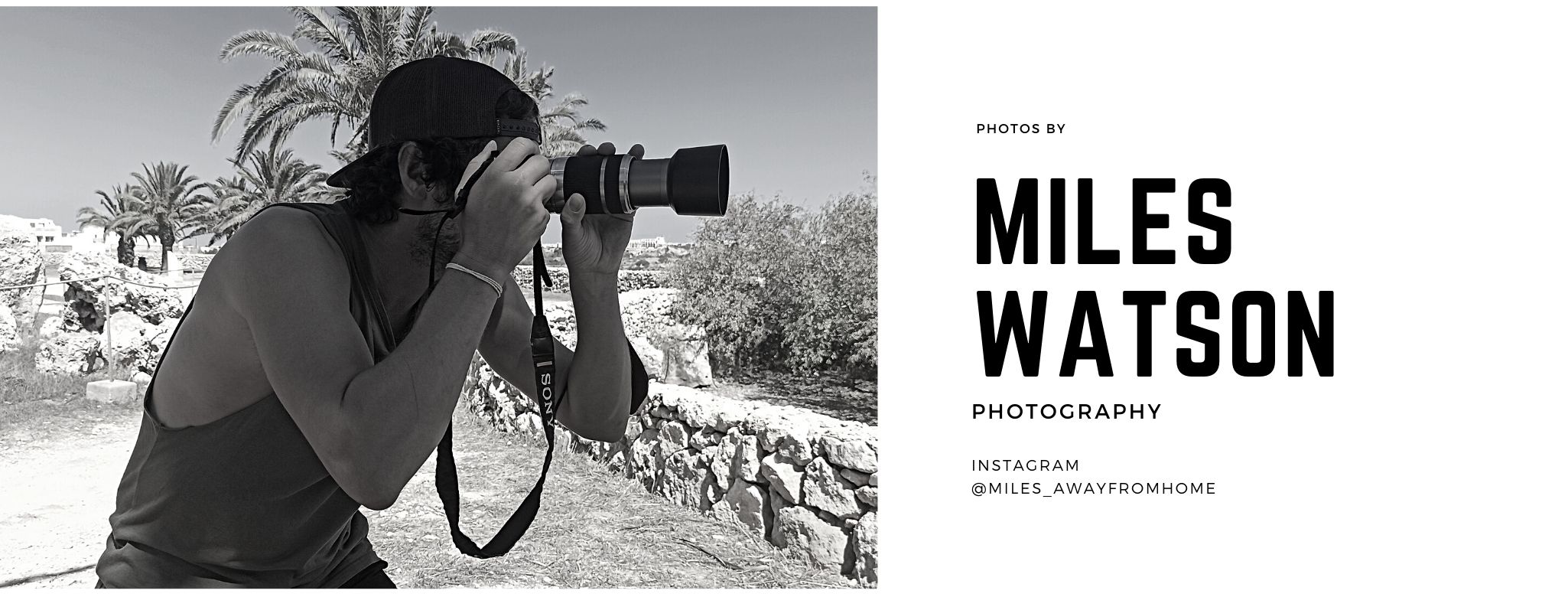Malta Expat Guide
For budget tips & compact place-specific travel info... Download my FREE Budget Fact Sheets. You're welcome.
| Download Steph's MALTA Quick Budget Fact Sheet | |
| File Size: | 302 kb |
| File Type: | |
How long does it take to really get to know a place? A couple of weeks, a few years… a lifetime? I spent 7 months on the mere 316 km² that forms the island of Malta. I walked every trail, visited every town, laid on every beach, explored its underwater world and systematically checked off every single sight listed on Wikipedia, Trip Advisor and Atlas Obscura. I worked there and made some friends. I lived in a back-to-the-roots Maltese street, far away from any expats, and tried to understand the local slang (especially when being yelled at by my neighbour). I even studied the Maltese cuisine in order to vegetarianize the native star dishes. But do I really, thoroughly know Malta, having unwired the pure fibres of its cultural, historical and traditional essence? Nah, probably not. I enjoyed it as a visitor, an observer… often sharply raising an eyebrow when confronted with local customs and habits. To be frank, very few things initially made sense to me, but I decided to dive in with an open mind in order to adapt along the way, somehow. While doing so, I made notes. For you, other fresh expats, bravely exchanging your home for this new (temporary?) base: “The Rock.”
Malta Expat Guide
Observations from an outsider: What to expect when moving to Malta
Malta Expat Guide
Observations from an outsider: What to expect when moving to Malta
Too busy to read now? No problem, save it for later!
Save on Get Pocket | Save in Browser Bookmarks| Save on Instapaper
Save on Get Pocket | Save in Browser Bookmarks| Save on Instapaper
Expectations versus Reality
I knew absolutely nothing about Malta. It was covid-time, my relationship just ended, and as a full-time traveler (6.5 years fulltime on the road at the time) I needed to reorganize my time in a meaningful manner while a continuation of my journey was heavily sabotaged. Then I received a phone call: “Hey, we have a job that might interest you, can we relocate you to Malta?” Sure, sign me right the f*ck up. I had never been there, so that’ll be another country to check off the list, easy does it. I threw my stuff into my backpack and flew in a week later. A quick 2-minute google session had taught me I was heading to an island somewhere in between Italy and Africa, which naively triggered some Mediterranean daydreams of waving palm trees and bronzed surfer boys dancing on a beach… When I arrived in the heart of St. Julian’s I realized I found myself in the middle of blaring construction work, cranes and honking traffic jams. And 90% of the beaches are made of rocks*… the overly tanned boys on it being drenched in oil, wearing awkwardly tight size-revealing speedos (at least I was right about the Italian influence). I called my mom and said going here was a mistake, but I’ll try to suck it up.
Turns out… it wasn’t a mistake, I ended up having a blast and eventually turned into a walking billboard promoting the many qualities of this lovely little island. I just needed to get the hell out of the St. Julian’s / Sliema area** and appreciate Malta for other merits***.
* I made an overview of Malta’s actual sand beaches here.
** Check out my Malta’s City’s Blog for recommended Maltese cities / villages to relocate to.
*** Hiking, scuba-diving, kayaking, rock-climbing, sightseeing, sailing… etc etc etc.
I knew absolutely nothing about Malta. It was covid-time, my relationship just ended, and as a full-time traveler (6.5 years fulltime on the road at the time) I needed to reorganize my time in a meaningful manner while a continuation of my journey was heavily sabotaged. Then I received a phone call: “Hey, we have a job that might interest you, can we relocate you to Malta?” Sure, sign me right the f*ck up. I had never been there, so that’ll be another country to check off the list, easy does it. I threw my stuff into my backpack and flew in a week later. A quick 2-minute google session had taught me I was heading to an island somewhere in between Italy and Africa, which naively triggered some Mediterranean daydreams of waving palm trees and bronzed surfer boys dancing on a beach… When I arrived in the heart of St. Julian’s I realized I found myself in the middle of blaring construction work, cranes and honking traffic jams. And 90% of the beaches are made of rocks*… the overly tanned boys on it being drenched in oil, wearing awkwardly tight size-revealing speedos (at least I was right about the Italian influence). I called my mom and said going here was a mistake, but I’ll try to suck it up.
Turns out… it wasn’t a mistake, I ended up having a blast and eventually turned into a walking billboard promoting the many qualities of this lovely little island. I just needed to get the hell out of the St. Julian’s / Sliema area** and appreciate Malta for other merits***.
* I made an overview of Malta’s actual sand beaches here.
** Check out my Malta’s City’s Blog for recommended Maltese cities / villages to relocate to.
*** Hiking, scuba-diving, kayaking, rock-climbing, sightseeing, sailing… etc etc etc.
Photo by Miles Watson
Salary Expectations & Financial Expenses
I didn’t go to Malta for the money. Good call... because if I did, I might have been rather disappointed. It of course 100% depends on your origins, background and what you’re used to, but as a Dutch person with a university master degree with honors in the pocket, 8+ years of working experience and knowledge of 9 languages, €2500 a month can be considered the minimum “back home”. Before I headed to Malta, I worked in one of Europe’s richest nations, Switzerland, and received a minimum wage (due to the seasonal position) of around €4300. In Malta I found a meagre €1500-1700 in my bank account at the end of each month, working in the iGaming / online gambling industry (which is the most prominent line of business on the island). I’m not complaining, as I’m aware that locals sometimes don’t even earn half of that and are faced with the same expenses as I was. However, it should be an aspect of your overall expectations, especially as it really isn’t as cheap over there as you might think.
Fair enough, the rent is about half what I would have paid in the Netherlands, as I decided to live in an area without too many expats and tourists (Cospicua in the Three Cities): I paid €550 per month, plus €60 for internet and €30-50 for gas, water, light and electricity. This might be expensive for locals, but it’s a bargain to me, considering I lived technically in a private small 3-floor house if I include the roof terrace. Grocery shopping is relatively expensive, as the prices are comparable to Western Europe (I had overall the same groceries expenses as in The Netherlands, and I mainly shopped at Lidl and directly from local farmers). Going out for dinner costs about €10-15. Covid closed down the entire local nightlife scene, which is a good thing, as I couldn’t really afford it with this salary anyway. By the end of the month, if I tried really really hard and didn’t go out, didn’t buy clothes or other presents to myself, travelled with public transport and just spent my time working around the clock, I still could only save up about €200-300 a month… although often I just broke even. Sure, I got to experience a new place and lived comfortably… but to work 40 hours a week to just exist, with hardly any leisure time or financial resources to truly live my life… that’s not a bargain I’d long-term sign up for. In fact, that’s exactly what I broke away from in 2014 when initiating my by-now-7-years-journey (only shortly interrupted by these 7 months in Malta because of that annoying little cockblocker called Covid-19).
Salary Expectations & Financial Expenses
I didn’t go to Malta for the money. Good call... because if I did, I might have been rather disappointed. It of course 100% depends on your origins, background and what you’re used to, but as a Dutch person with a university master degree with honors in the pocket, 8+ years of working experience and knowledge of 9 languages, €2500 a month can be considered the minimum “back home”. Before I headed to Malta, I worked in one of Europe’s richest nations, Switzerland, and received a minimum wage (due to the seasonal position) of around €4300. In Malta I found a meagre €1500-1700 in my bank account at the end of each month, working in the iGaming / online gambling industry (which is the most prominent line of business on the island). I’m not complaining, as I’m aware that locals sometimes don’t even earn half of that and are faced with the same expenses as I was. However, it should be an aspect of your overall expectations, especially as it really isn’t as cheap over there as you might think.
Fair enough, the rent is about half what I would have paid in the Netherlands, as I decided to live in an area without too many expats and tourists (Cospicua in the Three Cities): I paid €550 per month, plus €60 for internet and €30-50 for gas, water, light and electricity. This might be expensive for locals, but it’s a bargain to me, considering I lived technically in a private small 3-floor house if I include the roof terrace. Grocery shopping is relatively expensive, as the prices are comparable to Western Europe (I had overall the same groceries expenses as in The Netherlands, and I mainly shopped at Lidl and directly from local farmers). Going out for dinner costs about €10-15. Covid closed down the entire local nightlife scene, which is a good thing, as I couldn’t really afford it with this salary anyway. By the end of the month, if I tried really really hard and didn’t go out, didn’t buy clothes or other presents to myself, travelled with public transport and just spent my time working around the clock, I still could only save up about €200-300 a month… although often I just broke even. Sure, I got to experience a new place and lived comfortably… but to work 40 hours a week to just exist, with hardly any leisure time or financial resources to truly live my life… that’s not a bargain I’d long-term sign up for. In fact, that’s exactly what I broke away from in 2014 when initiating my by-now-7-years-journey (only shortly interrupted by these 7 months in Malta because of that annoying little cockblocker called Covid-19).
Photo by Miles Watson
Malta Loves Paperwork
Who the hell still owns a printer nowadays, in our digital era of e-forms and QR codes? In Malta everyone, so it seems. You’re forced into it. Within 2 weeks on the island I was on a first-name basis with the copyshop-owner around the block and knew how he drinks his coffee. You need a form for everything… print it, fill it out by hand, sign it, scan it, receive the response, print this as well, sign it, scan it, upon which 5 new forms appear out of nowhere, which have to be printed, filled out, signed and scanned once again. It’s the gift that keeps on giving. Per default, expect every formality or change (from requesting a tax number to seeing a doctor or registering a vehicle) to involve at least 3 different forms. Relax and sit back once you submitted them, as there is absolutely no rush on the receiving end to swiftly process them. You’re in the Mediterranean, baby. Occasionally forms get lost entirely and you will need to start all over again.
Therefore: The very first thing you need to focus on when setting foot in Malta is applying for your residency. You are legally required to apply for it after 3 months, but the reported processing time can vary between a few months to up to a year if you don’t know anyone who knows someone, or if you aren’t rich (if you register a company here or bring in a million or two, all of a sudden the process time can be shortened to 2 days). To apply at Identity Malta you need the following: Photocopy of ID / passport, proof of employment (your work contract or a job letter by Jobs Plus), your tax number and your social security number. The last two have to be requested separately too, and no one answers any emails nor picks up the phone, so this can take a couple of weeks on its own. In my case they also requested proof of a permanent registered address (rental contract and governmental registration form). They might ask less documents than mentioned above, but they also might not... the law and rules are always bent how the clerk serving you wishes, so I recommend bringing everything just to be safe, as you probably waited months for this appointment. So yes: That’s 2kg of forms and 2kg of body weight lost by pure stress and frustration. Long live bureaucracy.
On the flipside: As no one can really keep track of all those miles of paperwork, and this old-fashioned method stands in the way of a properly integrated digital system, this also opens some sneaky doors… in a photoshop-kinda way. I heard from a friend, needless to say.
Malta Loves Paperwork
Who the hell still owns a printer nowadays, in our digital era of e-forms and QR codes? In Malta everyone, so it seems. You’re forced into it. Within 2 weeks on the island I was on a first-name basis with the copyshop-owner around the block and knew how he drinks his coffee. You need a form for everything… print it, fill it out by hand, sign it, scan it, receive the response, print this as well, sign it, scan it, upon which 5 new forms appear out of nowhere, which have to be printed, filled out, signed and scanned once again. It’s the gift that keeps on giving. Per default, expect every formality or change (from requesting a tax number to seeing a doctor or registering a vehicle) to involve at least 3 different forms. Relax and sit back once you submitted them, as there is absolutely no rush on the receiving end to swiftly process them. You’re in the Mediterranean, baby. Occasionally forms get lost entirely and you will need to start all over again.
Therefore: The very first thing you need to focus on when setting foot in Malta is applying for your residency. You are legally required to apply for it after 3 months, but the reported processing time can vary between a few months to up to a year if you don’t know anyone who knows someone, or if you aren’t rich (if you register a company here or bring in a million or two, all of a sudden the process time can be shortened to 2 days). To apply at Identity Malta you need the following: Photocopy of ID / passport, proof of employment (your work contract or a job letter by Jobs Plus), your tax number and your social security number. The last two have to be requested separately too, and no one answers any emails nor picks up the phone, so this can take a couple of weeks on its own. In my case they also requested proof of a permanent registered address (rental contract and governmental registration form). They might ask less documents than mentioned above, but they also might not... the law and rules are always bent how the clerk serving you wishes, so I recommend bringing everything just to be safe, as you probably waited months for this appointment. So yes: That’s 2kg of forms and 2kg of body weight lost by pure stress and frustration. Long live bureaucracy.
On the flipside: As no one can really keep track of all those miles of paperwork, and this old-fashioned method stands in the way of a properly integrated digital system, this also opens some sneaky doors… in a photoshop-kinda way. I heard from a friend, needless to say.
Featured Comment [Anonymous Reader]
“What an impressive overview. I am an expat here since 6 years and you couldn’t have explained it better. […] One thing to add: As you are a EU citizen, of course your point of view is also that of a EU citizen. Your ID card is issued faster than is the case for non-EU-citizens. I am Albanian and it is much more complicated. For non-EU-citizens, the ID card issued is valid for only 1 year (it depends when you get it: for whatever months are left of the 1 year). You have to apply every year using the same 2kg documents, because they throw them away each year. Just like you did, you have to wait and wait... which is time during which you cannot leave the island. I ended up having a valid ID card for 6 months out of the year, while waiting the other 6 months for it to be issued because my old one expired. And you cannot apply for a new one before the expiry date, to be ahead of the time they take to issue it. It is unfortunately not allowed.”
“What an impressive overview. I am an expat here since 6 years and you couldn’t have explained it better. […] One thing to add: As you are a EU citizen, of course your point of view is also that of a EU citizen. Your ID card is issued faster than is the case for non-EU-citizens. I am Albanian and it is much more complicated. For non-EU-citizens, the ID card issued is valid for only 1 year (it depends when you get it: for whatever months are left of the 1 year). You have to apply every year using the same 2kg documents, because they throw them away each year. Just like you did, you have to wait and wait... which is time during which you cannot leave the island. I ended up having a valid ID card for 6 months out of the year, while waiting the other 6 months for it to be issued because my old one expired. And you cannot apply for a new one before the expiry date, to be ahead of the time they take to issue it. It is unfortunately not allowed.”
Renting in Malta
So you want to rent a place? I’m gonna wish you good luck, as you’ll need it: There’s a whole lotta bullcrap you will have to row through in this process… but you’ll manage, just keep your head cool! The first step is deciding about the area you want to settle down in for a bit. Please do me a favour, and don’t blindly focus on St. Julian’s and Sliema just because most expats are there. Of course every person is entitled to their own opinion, and that said, mine is that this area forms the ugly, reeking arsehole of Malta. There’s so much more to this lovely island! [Check out my Malta Favorite City Blog for further inspiration]. I recommend staying in a hostel/guesthouse for 1-2 weeks, explore the sh*t out of the entire islands of Malta and Gozo, and then decide which places appeal to you the most. You’re gonna spend most of your time there, after all! Keep in mind that Valletta, the St. Julian’s-Sliema area and Mellieha are much more expensive than the rest of Malta. Gozo is more peaceful and natural, and a whole lot cheaper than the Malta island, but it might entail some extra complications if you’re not working from home and possibly have to travel to the other island every day (that’s very time-consuming outside of the summer season, when the Gozo Fast Ferry doesn’t operate). The next step is thinking about your preferred living situation: Do you want a private house / apartment, a shared apartment with roommates, or a shared room? Yes, the latter is really a thing here.
Once you've got this clear, the search can begin! There are two important things to keep in mind: 1) The minimum rental time by law is officially 12 months, but landlords can lawfully cancel it after 6 months. During all viewings I attended, a 6-month lease period was offered. Shorter than that is generally not possible, although it might be negotiable in shared apartments. 2) The housing market is polluted with agents, all taking a commission of 50-100% of an entire month rent, for basically doing nothing but opening the door for a viewing and copy-pasting a standard rental contract. As you will also be expected to pay a full month’s rent deposit, this can seriously stress your first month’s budget. I recommend renting directly from the owner whenever possible to cut out these leeches. The easiest way to find a place is via Facebook, either by Marketplace or the countless Malta-Rent-Groups. Always go to a viewing to check the place and street out, ask everything that’s important to you in advance, and trust your gut feeling when it comes to the house owner, as you’ll be dealing with this person a lot and (s)he can make or break your stay in Malta. Horror stories about abominable landlords operating in Malta are so abundant, a special Facebook Group was created around this topic.
Before signing the lease, read the fineprint, especially what is your financial responsibility and what isn’t. This must be stated in black-and-white! During my rental period, my washing machine broke down and having in writing that this was not my financial responsibility truly saved my ass. Go through the full inventory list together with your landlord/lady and check if everything works. Photograph every wall and every piece of furniture with the house owner next to you, especially if you locate damage, so you have proof this wasn’t caused by you (don’t forget they have your deposit!).
It’s quite common to pre-pay a fixed amount for gas, water and electricity (around €50), which will be calculated for adjustment at the end of every 3 months. Demand seeing that bill, it’s your right as a renter. It’s important to realize there are different rates for residents and non-permanent visitors. The price difference is substantial: almost double! As extra paperwork is needed to get this sorted, many house owners don’t want to go through the hassle, because it’s you who will be paying this anyway. However, I recommend growing a pair and putting your foot down when it comes to this matter.
Another observation: Street numbering doesn’t make sense here. As an example: I lived on number 39 and my neighbours were 10 and 27. Understandably, Google Maps lost the plot as well. I recommend always asking for the location to be shared via Whatsapp, to save time.
So you want to rent a place? I’m gonna wish you good luck, as you’ll need it: There’s a whole lotta bullcrap you will have to row through in this process… but you’ll manage, just keep your head cool! The first step is deciding about the area you want to settle down in for a bit. Please do me a favour, and don’t blindly focus on St. Julian’s and Sliema just because most expats are there. Of course every person is entitled to their own opinion, and that said, mine is that this area forms the ugly, reeking arsehole of Malta. There’s so much more to this lovely island! [Check out my Malta Favorite City Blog for further inspiration]. I recommend staying in a hostel/guesthouse for 1-2 weeks, explore the sh*t out of the entire islands of Malta and Gozo, and then decide which places appeal to you the most. You’re gonna spend most of your time there, after all! Keep in mind that Valletta, the St. Julian’s-Sliema area and Mellieha are much more expensive than the rest of Malta. Gozo is more peaceful and natural, and a whole lot cheaper than the Malta island, but it might entail some extra complications if you’re not working from home and possibly have to travel to the other island every day (that’s very time-consuming outside of the summer season, when the Gozo Fast Ferry doesn’t operate). The next step is thinking about your preferred living situation: Do you want a private house / apartment, a shared apartment with roommates, or a shared room? Yes, the latter is really a thing here.
Once you've got this clear, the search can begin! There are two important things to keep in mind: 1) The minimum rental time by law is officially 12 months, but landlords can lawfully cancel it after 6 months. During all viewings I attended, a 6-month lease period was offered. Shorter than that is generally not possible, although it might be negotiable in shared apartments. 2) The housing market is polluted with agents, all taking a commission of 50-100% of an entire month rent, for basically doing nothing but opening the door for a viewing and copy-pasting a standard rental contract. As you will also be expected to pay a full month’s rent deposit, this can seriously stress your first month’s budget. I recommend renting directly from the owner whenever possible to cut out these leeches. The easiest way to find a place is via Facebook, either by Marketplace or the countless Malta-Rent-Groups. Always go to a viewing to check the place and street out, ask everything that’s important to you in advance, and trust your gut feeling when it comes to the house owner, as you’ll be dealing with this person a lot and (s)he can make or break your stay in Malta. Horror stories about abominable landlords operating in Malta are so abundant, a special Facebook Group was created around this topic.
Before signing the lease, read the fineprint, especially what is your financial responsibility and what isn’t. This must be stated in black-and-white! During my rental period, my washing machine broke down and having in writing that this was not my financial responsibility truly saved my ass. Go through the full inventory list together with your landlord/lady and check if everything works. Photograph every wall and every piece of furniture with the house owner next to you, especially if you locate damage, so you have proof this wasn’t caused by you (don’t forget they have your deposit!).
It’s quite common to pre-pay a fixed amount for gas, water and electricity (around €50), which will be calculated for adjustment at the end of every 3 months. Demand seeing that bill, it’s your right as a renter. It’s important to realize there are different rates for residents and non-permanent visitors. The price difference is substantial: almost double! As extra paperwork is needed to get this sorted, many house owners don’t want to go through the hassle, because it’s you who will be paying this anyway. However, I recommend growing a pair and putting your foot down when it comes to this matter.
Another observation: Street numbering doesn’t make sense here. As an example: I lived on number 39 and my neighbours were 10 and 27. Understandably, Google Maps lost the plot as well. I recommend always asking for the location to be shared via Whatsapp, to save time.
Aircon and Heating are Essential
I learned this the hard way. I was so heated up by the exciting idea of residing in a stunning “house of character,” that I didn’t realize how freezing cold it was inside. Yes, in Malta! Odd in a way, as the walls were about half a meter thick, so insulation shouldn’t be a problem… It was though. For all I know it kept the small amount of warmth there was in winter safely outside, as stepping into my house felt like entering a life-size refrigerator. One teeny-weeny electrical heater definitely couldn’t prevent me from wearing 2-3 layers of clothing, shuffling around like a mummy wrapped up in fleece blankets. I kept holding on to the thought that this was going to work in my favor when the unbearable summer heat would hit, keeping me nice and cool inside when the outdoors is burnt down to dust and dryness.
Surprise surprise: It did not. I’m not going to comment about the architectural and constructional capabilities of the Maltese (as tirelessly erecting new apartment blocks on every patch of land they can lay their hands on seems to be their favorite hobby), but the building I lived in felt like a tomb inside during winter, while turning into an insufferable sauna in summer, exceeding the outdoor climate of 45+ degrees Celsius. And you guessed it, I did not have aircon! Hell. On. Earth. Like literally approaching the burning fires of the abyss. I had to accept that 3 cold showers a day couldn’t change the fact that salty drops of sweat continuously streamed off all my body parts at every given moment of the day and night. Even when laying still on my bed, with a ventilator pointed at me and my legs and arms spread like a sea star to avoid any skin-to-skin contact, the wet outline of my body was stamped into the bed sheets within mere minutes. I had to give up on any form of physical exercise, intimacy or just overall comfortability in my own body. Don’t repeat my mistakes.
I learned this the hard way. I was so heated up by the exciting idea of residing in a stunning “house of character,” that I didn’t realize how freezing cold it was inside. Yes, in Malta! Odd in a way, as the walls were about half a meter thick, so insulation shouldn’t be a problem… It was though. For all I know it kept the small amount of warmth there was in winter safely outside, as stepping into my house felt like entering a life-size refrigerator. One teeny-weeny electrical heater definitely couldn’t prevent me from wearing 2-3 layers of clothing, shuffling around like a mummy wrapped up in fleece blankets. I kept holding on to the thought that this was going to work in my favor when the unbearable summer heat would hit, keeping me nice and cool inside when the outdoors is burnt down to dust and dryness.
Surprise surprise: It did not. I’m not going to comment about the architectural and constructional capabilities of the Maltese (as tirelessly erecting new apartment blocks on every patch of land they can lay their hands on seems to be their favorite hobby), but the building I lived in felt like a tomb inside during winter, while turning into an insufferable sauna in summer, exceeding the outdoor climate of 45+ degrees Celsius. And you guessed it, I did not have aircon! Hell. On. Earth. Like literally approaching the burning fires of the abyss. I had to accept that 3 cold showers a day couldn’t change the fact that salty drops of sweat continuously streamed off all my body parts at every given moment of the day and night. Even when laying still on my bed, with a ventilator pointed at me and my legs and arms spread like a sea star to avoid any skin-to-skin contact, the wet outline of my body was stamped into the bed sheets within mere minutes. I had to give up on any form of physical exercise, intimacy or just overall comfortability in my own body. Don’t repeat my mistakes.
Malta is a City and its Cities are Neighbourhoods
One thing I found very intriguing from the get-go, is that the Maltese hold on to a really powerful sense of identity derived from the city where they live in. This comes with accents, different celebrations and strong stereotypes. You can’t parallel Bugibba with Marsaxlokk, and dare to compare a girl from Sliema with a gal from Bormla. And the islands of Malta and Gozo? Different worlds! To put it into perspective though: The country is 316 km² and has ± 525,300 inhabitants (incl. a sizeable chunk of expats)… I walked from the north to the south of the island of Malta in one afternoon. My entire “city “could be seen in about 10-15 minutes, when giving it the benefit of the doubt. I get it… when the island starts feeling too small, just make it sound bigger ;)
One thing I found very intriguing from the get-go, is that the Maltese hold on to a really powerful sense of identity derived from the city where they live in. This comes with accents, different celebrations and strong stereotypes. You can’t parallel Bugibba with Marsaxlokk, and dare to compare a girl from Sliema with a gal from Bormla. And the islands of Malta and Gozo? Different worlds! To put it into perspective though: The country is 316 km² and has ± 525,300 inhabitants (incl. a sizeable chunk of expats)… I walked from the north to the south of the island of Malta in one afternoon. My entire “city “could be seen in about 10-15 minutes, when giving it the benefit of the doubt. I get it… when the island starts feeling too small, just make it sound bigger ;)
Internet & Sim Cards
Allegedly, Malta’s internet quality is dangling low in the Europe-list (the 2nd worst to be exact, only beaten in misery by Estonia). My experience is that it indeed leaves a lot to desire for, especially considering the steep rate they dare to charge for home internet, but it’s still more than enough to allow an overcrowded online iGaming branch as well as a local crypto-community to flourish. I worked online from home and I barely encountered severe issues. The main players for home internet are Melita, Go and Epic (which is Vodafone but with a cooler name). As currently Melita is the only one allowing you to cancel your subscription at any given time, I went with them. Note that it’s apparently normal for the other companies to lock you in for 2 years! Jesus Christ, I don’t even know where I’ll be tomorrow, let alone in 2 years from now… mental! Due to the nature of my work I decided to go with Melita’s fastest package (with the flexibility fee and some other nonsense about €60 a month). That was a mistake, as it never ever reached even a quarter of the promised speed, so I could have saved myself some serious bucks. Also the slowness, inconsistency and incompetence of their customer service never failed to blow my mind. Take into account that you have to pay quite the fee to get the cabling done. Or in case you already have the cables from the previous resident: even for a dude to come over and literally plug it in, a 3-seconds hand movement, a bill is presented.
A prepaid simcard can be bought in any kiosk or phone shop and costs about €10. The most flexible is Epic, which when I lived in Malta was the only company that doesn’t lock you into a contract. Anno 2021, I paid only €5.99 for a 4GB data only package, valid for 4 weeks*, which was enough for me. Phone calls were extremely expensive outside of any package, at about €1,50 for a short call, so I always used my data to call via WhatsApp or Skype (if you call a lot, consider buying a monthly 100-minute Malta package on Skype).
* For this one, top-up your credit and sms DATA to 16200.
Allegedly, Malta’s internet quality is dangling low in the Europe-list (the 2nd worst to be exact, only beaten in misery by Estonia). My experience is that it indeed leaves a lot to desire for, especially considering the steep rate they dare to charge for home internet, but it’s still more than enough to allow an overcrowded online iGaming branch as well as a local crypto-community to flourish. I worked online from home and I barely encountered severe issues. The main players for home internet are Melita, Go and Epic (which is Vodafone but with a cooler name). As currently Melita is the only one allowing you to cancel your subscription at any given time, I went with them. Note that it’s apparently normal for the other companies to lock you in for 2 years! Jesus Christ, I don’t even know where I’ll be tomorrow, let alone in 2 years from now… mental! Due to the nature of my work I decided to go with Melita’s fastest package (with the flexibility fee and some other nonsense about €60 a month). That was a mistake, as it never ever reached even a quarter of the promised speed, so I could have saved myself some serious bucks. Also the slowness, inconsistency and incompetence of their customer service never failed to blow my mind. Take into account that you have to pay quite the fee to get the cabling done. Or in case you already have the cables from the previous resident: even for a dude to come over and literally plug it in, a 3-seconds hand movement, a bill is presented.
A prepaid simcard can be bought in any kiosk or phone shop and costs about €10. The most flexible is Epic, which when I lived in Malta was the only company that doesn’t lock you into a contract. Anno 2021, I paid only €5.99 for a 4GB data only package, valid for 4 weeks*, which was enough for me. Phone calls were extremely expensive outside of any package, at about €1,50 for a short call, so I always used my data to call via WhatsApp or Skype (if you call a lot, consider buying a monthly 100-minute Malta package on Skype).
* For this one, top-up your credit and sms DATA to 16200.
Healthcare in Malta
It’s free. Yes, really. If you are a tax-paying resident it’s always free*, if you’re a tourist only in case of emergency – no health insurance needed! Pretty awesome, if you ask me. You can just randomly walk into the health centre of your area to be attended by a general practitioner, who will refer you to a specialist. Keep in mind that specialists generally have long waiting times. I waited 3 months to see one, and when the day had finally come, the nurses were on strike and I was asked to come back in another 3 months (apparently this was news that couldn’t be communicated over the phone, so I had to reschedule work for no reason). Cool.
If you really can’t be bothered to deal with all the inefficiency which is an inherent part of Maltese public health care: Private health care is generally covered by your company, or you can sign up individually (without being obligated to do so by law). I have a pretty decent experience with Atlas, which covered my dental, orthopaedic and dermal care expenses within a brief time frame… as I figured I might as well get everything taken care of, as vagabond-me has gotten used to living on the edge a little with no health insurance at all. Don’t forget: In order to be refunded, you always have to see a general practitioner first and get their reference to a certain specialist written down and signed on the dedicated insurance form (that you have to print out in advance), combined with a second fully filled out form by the specialist, including all receipts. Malta hearts paperwork, don’t you forget it!
Extra note: The amount of fully paid sick days in most companies is severely limited and specified in your work contract. I had 10 sick days a year. So basically, if I were to get a life-threatening disease and needed to be hospitalized for several months without being able to work, I could just go f*ck myself. Being born in a country where in case of severe sickness you can’t be fired and are to receive 100% of your salary the first year of absence, and 80% the second, the Malta-approach is truly absurd to me. It made me realize I could never settle down here for the long run, if such a crazy idea would ever infiltrate my mind to begin with.
*Given that you can proof that you're a tax paying citizen. They only asked me my residency card, but expect them to also ask previous payslips and/or tax documentation that proofs you pay local taxes. Another document could be an "entitlement card". It's best to play safe and bring all documentation you have/
It’s free. Yes, really. If you are a tax-paying resident it’s always free*, if you’re a tourist only in case of emergency – no health insurance needed! Pretty awesome, if you ask me. You can just randomly walk into the health centre of your area to be attended by a general practitioner, who will refer you to a specialist. Keep in mind that specialists generally have long waiting times. I waited 3 months to see one, and when the day had finally come, the nurses were on strike and I was asked to come back in another 3 months (apparently this was news that couldn’t be communicated over the phone, so I had to reschedule work for no reason). Cool.
If you really can’t be bothered to deal with all the inefficiency which is an inherent part of Maltese public health care: Private health care is generally covered by your company, or you can sign up individually (without being obligated to do so by law). I have a pretty decent experience with Atlas, which covered my dental, orthopaedic and dermal care expenses within a brief time frame… as I figured I might as well get everything taken care of, as vagabond-me has gotten used to living on the edge a little with no health insurance at all. Don’t forget: In order to be refunded, you always have to see a general practitioner first and get their reference to a certain specialist written down and signed on the dedicated insurance form (that you have to print out in advance), combined with a second fully filled out form by the specialist, including all receipts. Malta hearts paperwork, don’t you forget it!
Extra note: The amount of fully paid sick days in most companies is severely limited and specified in your work contract. I had 10 sick days a year. So basically, if I were to get a life-threatening disease and needed to be hospitalized for several months without being able to work, I could just go f*ck myself. Being born in a country where in case of severe sickness you can’t be fired and are to receive 100% of your salary the first year of absence, and 80% the second, the Malta-approach is truly absurd to me. It made me realize I could never settle down here for the long run, if such a crazy idea would ever infiltrate my mind to begin with.
*Given that you can proof that you're a tax paying citizen. They only asked me my residency card, but expect them to also ask previous payslips and/or tax documentation that proofs you pay local taxes. Another document could be an "entitlement card". It's best to play safe and bring all documentation you have/
Friends are Easily Made
As I was new to the island, I’d figure I post a quick line on the Malta Expats Facebook Group in order to meet some people with likeminded passions and leisure activities. For friendship, not dating, I wrote. Over the course of 24 hours I received about 200 replies. Many for dating anyway, as I guess on an islet the limited choice runs out rather quickly and you miss 100% of the shots not taken. However, even more were sincere reactions, from both men and women. I met up with a handful of these and gathered quite the interesting clique around me. Minus one, all of them fellow expats from all corners of the world… as boy, there are so many of us! And we are all in a new country, with our family and home-town friends far away. Don’t be shy and fade away solo in between your own four walls, let’s hang out! Just join some of the many Malta Facebook groups and drop a note.
As I was new to the island, I’d figure I post a quick line on the Malta Expats Facebook Group in order to meet some people with likeminded passions and leisure activities. For friendship, not dating, I wrote. Over the course of 24 hours I received about 200 replies. Many for dating anyway, as I guess on an islet the limited choice runs out rather quickly and you miss 100% of the shots not taken. However, even more were sincere reactions, from both men and women. I met up with a handful of these and gathered quite the interesting clique around me. Minus one, all of them fellow expats from all corners of the world… as boy, there are so many of us! And we are all in a new country, with our family and home-town friends far away. Don’t be shy and fade away solo in between your own four walls, let’s hang out! Just join some of the many Malta Facebook groups and drop a note.
Dating in Malta
I’m not the chosen one to give island dating advice, as I didn’t participate. That said, in my first 2 heartbroken weeks I did check out “the market” via our loved and hated dating device: Tinder. I deleted it shortly after. As a heterosexual woman, I could grossly divide the local men into two types, neither being mine: A) The friendly, goofy guy next door – generally short-haired and round-bellied, posing awkwardly in front of Popeye Village, with or without thumbs up; B) The ripped, dark bronzed, fully body-shaved, heavily tattooed macho man – either photographed when exiting the sea, dripping wet with one hand brushing his hair back in slow-motion, or reflected in some random bathroom mirror holding up his own shirt and biting the under lip. I guess it’s a niche. Luckily, Tinder captures only a fraction of the single crowd. Your best bet might be to join some of the many activities-groups on Facebook suiting your specific interests (such as the Malta Hiking and Camping Group or the Malta Tango Group, to give an example) and casually meet up with like-minded souls without this entire theatre around it. As my Maltese friend confirmed: “Living on a small island is funny that way: every person you are potentially interested in, you have either already dated or he/she has rejected you - expats refresh the market.” This is your cue.
I’m not the chosen one to give island dating advice, as I didn’t participate. That said, in my first 2 heartbroken weeks I did check out “the market” via our loved and hated dating device: Tinder. I deleted it shortly after. As a heterosexual woman, I could grossly divide the local men into two types, neither being mine: A) The friendly, goofy guy next door – generally short-haired and round-bellied, posing awkwardly in front of Popeye Village, with or without thumbs up; B) The ripped, dark bronzed, fully body-shaved, heavily tattooed macho man – either photographed when exiting the sea, dripping wet with one hand brushing his hair back in slow-motion, or reflected in some random bathroom mirror holding up his own shirt and biting the under lip. I guess it’s a niche. Luckily, Tinder captures only a fraction of the single crowd. Your best bet might be to join some of the many activities-groups on Facebook suiting your specific interests (such as the Malta Hiking and Camping Group or the Malta Tango Group, to give an example) and casually meet up with like-minded souls without this entire theatre around it. As my Maltese friend confirmed: “Living on a small island is funny that way: every person you are potentially interested in, you have either already dated or he/she has rejected you - expats refresh the market.” This is your cue.
Facebook Marketplace is Hot
I already mentioned that Facebook is the platform for finding accommodation, friends and the love of your life… But in Malta, everything is for sale via Facebook. Furniture, kitchen appliances, vehicles, you name it! Great for expats like us, as those first few months are already expensive enough when settling down in a new place… we could use a cheap deal! And when we go, we can get rid of our shit quickly again! As people love to negotiate here, I recommend bidding for about 50-70% of the price you’re willing to pay, to end the negotiation right where you want it... Obviously, it works the same the other way around: If you sell an item, quote a much higher price than your minimum.
I already mentioned that Facebook is the platform for finding accommodation, friends and the love of your life… But in Malta, everything is for sale via Facebook. Furniture, kitchen appliances, vehicles, you name it! Great for expats like us, as those first few months are already expensive enough when settling down in a new place… we could use a cheap deal! And when we go, we can get rid of our shit quickly again! As people love to negotiate here, I recommend bidding for about 50-70% of the price you’re willing to pay, to end the negotiation right where you want it... Obviously, it works the same the other way around: If you sell an item, quote a much higher price than your minimum.
Malta’s Bus Transportation Sucks Balls
Admittedly, the buses look very modern and promising at first glance. Also the website, with different ticket options and a comprehensive information overview is rather hopeful. Spoiler alert: This is all just a façade. First of all, ordering a resident bus pass (the green Talinja Card which cuts the bus fares in half) takes a jawdropping 3-4 weeks to be processed… upon which as a common practice the mailman cannot find your home address, so you have to pick it up at the post office which is only open a few hours a day when you have to work. When I finally had it in my possession, they forgot to put the €20 credit on it I was forced to pre-pay for. Fantastic job, Transport Malta!
That said, this is only the beginning of the misery. I honestly don’t give a flying f*ck how modern and Western European the bus looks if it fails to show up half of the time. Sometimes when it finally does show up after 30-60 minutes of waiting, the driver is so lost in his own thoughts that he fails to notice you ardently hailing down the bus and simply doesn’t stop (this was not a one-time event for me, it happened several times a month). Some of them find the bus too full for Covid, some don’t care, so it’s always a surprise if they decide to open the doors or not to begin with. Connections are a shitshow as well, so even though one ticket is valid for 2 hours, you can easily exceed this time frame when heading to the other end of the island (quite impressive considering it's only about 30km long). On weekends, when everyone is out and about, the Maltese response is to limit the amount of services. In short: Transport Malta has zero respect for your time and is entirely unreliable if you have the responsibility to show up somewhere on time.
As it took me 4 months to get my residency and you cannot buy a car without it, I had no choice but to either get a taxi (and my limited salary didn’t leave much room for that) or just suck it up. My approach was to get familiar with Malta’s topography ASAP and take any bus that shows up first and slightly goes into the correct direction, even if it means I had to walk 20+ minutes. The one bus that works out best might never show up, as experience has taught.
Find ticket prices and long-term cards here. Download the (rather unreliable) Talinja app here. Order the Resident Talinja Card here, and top up here (this can also take 24hrs to process!). You can also use your Talinja Card on the Sliema-Valletta-3Cities ferries, as well as on the Gozo Fast Ferry.
Admittedly, the buses look very modern and promising at first glance. Also the website, with different ticket options and a comprehensive information overview is rather hopeful. Spoiler alert: This is all just a façade. First of all, ordering a resident bus pass (the green Talinja Card which cuts the bus fares in half) takes a jawdropping 3-4 weeks to be processed… upon which as a common practice the mailman cannot find your home address, so you have to pick it up at the post office which is only open a few hours a day when you have to work. When I finally had it in my possession, they forgot to put the €20 credit on it I was forced to pre-pay for. Fantastic job, Transport Malta!
That said, this is only the beginning of the misery. I honestly don’t give a flying f*ck how modern and Western European the bus looks if it fails to show up half of the time. Sometimes when it finally does show up after 30-60 minutes of waiting, the driver is so lost in his own thoughts that he fails to notice you ardently hailing down the bus and simply doesn’t stop (this was not a one-time event for me, it happened several times a month). Some of them find the bus too full for Covid, some don’t care, so it’s always a surprise if they decide to open the doors or not to begin with. Connections are a shitshow as well, so even though one ticket is valid for 2 hours, you can easily exceed this time frame when heading to the other end of the island (quite impressive considering it's only about 30km long). On weekends, when everyone is out and about, the Maltese response is to limit the amount of services. In short: Transport Malta has zero respect for your time and is entirely unreliable if you have the responsibility to show up somewhere on time.
As it took me 4 months to get my residency and you cannot buy a car without it, I had no choice but to either get a taxi (and my limited salary didn’t leave much room for that) or just suck it up. My approach was to get familiar with Malta’s topography ASAP and take any bus that shows up first and slightly goes into the correct direction, even if it means I had to walk 20+ minutes. The one bus that works out best might never show up, as experience has taught.
Find ticket prices and long-term cards here. Download the (rather unreliable) Talinja app here. Order the Resident Talinja Card here, and top up here (this can also take 24hrs to process!). You can also use your Talinja Card on the Sliema-Valletta-3Cities ferries, as well as on the Gozo Fast Ferry.
The Traffic Situation
This crappy bus system is tightly related to another island-problem: the (air/sound) pollution caused by the ridiculous amount of cars on the island, permanently locked in a daily traffic jam. Add to that that the average Maltese is an “adventurous” driver (driving with 60km/h out of a parking spot turning a blind eye to other vehicles that happen to drive that road… flying around a corner with squeaking tires ignoring the pedestrian crossing someone is already walking on… parking horizontally blocking the sidewalk and the main road… it’s all considered common practice here, YOLO!). I bought a bicycle, and after 3 near-death-experiences in one 40-minute-drive it sat there collecting dust in the hallway until I sold it to another brave soul. Don’t do that shit, Dutchie talking. That said, if you’re bold enough to join the madness and get a car, motorcycle or scooter bike, do know that you first need your residency card plus a lot of extra patience to get your vehicle’s paperwork in order. This can take weeks to a few months if you don’t have any connections. Also, if you intend to drive a scooter bike exceeding 125cc, you need a separate license (also if you already have a car or motorcycle license). Mind that in Malta they drive on the left side of the road, so also the cars are “the other way around.”
This crappy bus system is tightly related to another island-problem: the (air/sound) pollution caused by the ridiculous amount of cars on the island, permanently locked in a daily traffic jam. Add to that that the average Maltese is an “adventurous” driver (driving with 60km/h out of a parking spot turning a blind eye to other vehicles that happen to drive that road… flying around a corner with squeaking tires ignoring the pedestrian crossing someone is already walking on… parking horizontally blocking the sidewalk and the main road… it’s all considered common practice here, YOLO!). I bought a bicycle, and after 3 near-death-experiences in one 40-minute-drive it sat there collecting dust in the hallway until I sold it to another brave soul. Don’t do that shit, Dutchie talking. That said, if you’re bold enough to join the madness and get a car, motorcycle or scooter bike, do know that you first need your residency card plus a lot of extra patience to get your vehicle’s paperwork in order. This can take weeks to a few months if you don’t have any connections. Also, if you intend to drive a scooter bike exceeding 125cc, you need a separate license (also if you already have a car or motorcycle license). Mind that in Malta they drive on the left side of the road, so also the cars are “the other way around.”
No Uber, but Bolt
Hailing a cab down on the street is so pre-2000s. Nowadays we Uber the shit out of our holiday destinations. Quite a useless app in Malta though… because here we have Bolt, which works exactly the same.* Their competitor is Ecabs. I recommend downloading both apps, as prices and availability can slightly vary and it’s always good to quickly compare. A third option is Cool, which isn’t so cool as they deem themselves to be. Cool is a Carpool app, which means you might share the car with several other clients and they will make detours along the way to pick up other people. Cool often entails ridiculously long waiting times (up to half an hour) and requests you to walk to a certain pick-up point which can be far out. I was once forced to walk 20 minutes from my requested location to the pick-up point, and when the car had taken off in the meantime, I was charged 3 bucks for no-show… subsequently I was persistently ignored by their customer “service”. Yes, it’s cheaper, but you pay the price in other ways.
If you don’t mind driving yourself: A Go membership enables you to trace down and unlock electronic cars and scooters, after which you pay per minute. In theory this sounds great and environmentally friendly, but my personal experience is that the app sometimes fails to work and then your vehicle won’t work either. I’m talking: Literally standing in the middle of the main access road of a village with a long line of honking cars behind you, and the handbrake and car is locked right there and then because the app refused to cooperate. Yeah, nah.
* Bolt has a second app for food delivery: Bolt Food. The alternative is Uber Eats.
Hailing a cab down on the street is so pre-2000s. Nowadays we Uber the shit out of our holiday destinations. Quite a useless app in Malta though… because here we have Bolt, which works exactly the same.* Their competitor is Ecabs. I recommend downloading both apps, as prices and availability can slightly vary and it’s always good to quickly compare. A third option is Cool, which isn’t so cool as they deem themselves to be. Cool is a Carpool app, which means you might share the car with several other clients and they will make detours along the way to pick up other people. Cool often entails ridiculously long waiting times (up to half an hour) and requests you to walk to a certain pick-up point which can be far out. I was once forced to walk 20 minutes from my requested location to the pick-up point, and when the car had taken off in the meantime, I was charged 3 bucks for no-show… subsequently I was persistently ignored by their customer “service”. Yes, it’s cheaper, but you pay the price in other ways.
If you don’t mind driving yourself: A Go membership enables you to trace down and unlock electronic cars and scooters, after which you pay per minute. In theory this sounds great and environmentally friendly, but my personal experience is that the app sometimes fails to work and then your vehicle won’t work either. I’m talking: Literally standing in the middle of the main access road of a village with a long line of honking cars behind you, and the handbrake and car is locked right there and then because the app refused to cooperate. Yeah, nah.
* Bolt has a second app for food delivery: Bolt Food. The alternative is Uber Eats.
Everyone Speaks English
Talking about driving on the left… another remainder of the English heritage is that everyone speaks perfect English here. Every generation, from young to old, and in a delicious accent you won’t hear anywhere else in the world! In a way, that’s good news for us, as the Maltese native language is a proper pain in the ass. Don’t get me wrong, the only Latin-written Arabic language worldwide sounds truly pleasant and intriguing, like some Italian half-hummed gangster rap song… It’s just really, really hard to learn. I pondered shortly to make it my 10th language. I mean, who the hell speaks Maltese, how cool would that be? But after a few evenings I changed my mind, as indeed: Who the hell speaks Maltese? Once I leave, it would be a lost art I can’t put into practice anywhere else. I might as well study the Koshian Bantu four-click language. But don’t let me demotivate you, especially not if you’re in here for the long run! My personal experience taught me that speaking the native tongue opens many doors and is the most crucial step towards integration.
* A confusing thing is that some cities have Maltese names and “English names,” which are by no means a translation. The prime example is the Three Cities: Vittoriosa in Maltese and Birgu in English, Bormla in Maltese and Cospicua in English, Isla in Maltese and Senglea in English. How, why?
Talking about driving on the left… another remainder of the English heritage is that everyone speaks perfect English here. Every generation, from young to old, and in a delicious accent you won’t hear anywhere else in the world! In a way, that’s good news for us, as the Maltese native language is a proper pain in the ass. Don’t get me wrong, the only Latin-written Arabic language worldwide sounds truly pleasant and intriguing, like some Italian half-hummed gangster rap song… It’s just really, really hard to learn. I pondered shortly to make it my 10th language. I mean, who the hell speaks Maltese, how cool would that be? But after a few evenings I changed my mind, as indeed: Who the hell speaks Maltese? Once I leave, it would be a lost art I can’t put into practice anywhere else. I might as well study the Koshian Bantu four-click language. But don’t let me demotivate you, especially not if you’re in here for the long run! My personal experience taught me that speaking the native tongue opens many doors and is the most crucial step towards integration.
* A confusing thing is that some cities have Maltese names and “English names,” which are by no means a translation. The prime example is the Three Cities: Vittoriosa in Maltese and Birgu in English, Bormla in Maltese and Cospicua in English, Isla in Maltese and Senglea in English. How, why?
"Go Back to Your Country"
No matter how integrated, accepting, and open-minded to your new land and culture you might be though… you will learn that some Maltese are not. I get it in a way. In the island’s turbulent history foreign influence often didn’t do them any favors. Also currently, with wealthy Westerners en masse moving in to work for flashy million-dollar businesses, prices rise rapidly and the energy changes. The latter can be perceived as frightening or undesirable to some who grew up in a tight community leaning on religion and strict traditions. That said, I don’t think there is any excuse for overall xenophobia (to foreigners overall) or flat-out racism (unfortunately often the case with regards to expats from African and Indian descent), which is generally expressed with the by-now famous phrase “Go back to your country.” I heard it a few times, most expats heard it several times, you will hear it too once you move here. My advice is to take it with a grain of salt and swap any feelings of anger for a loud laugh. This comment is entirely unrelated to you as a person, and merely expresses the narrow-mindedness of the one saying it. Please keep in mind to not duplicate the exact same mistake and boomerang such emotions back to an entire population group: It’s a very select niche of Maltese people who think and act that way (unfortunately the loudest of ‘em all), the rest is a fantastic bunch!
No matter how integrated, accepting, and open-minded to your new land and culture you might be though… you will learn that some Maltese are not. I get it in a way. In the island’s turbulent history foreign influence often didn’t do them any favors. Also currently, with wealthy Westerners en masse moving in to work for flashy million-dollar businesses, prices rise rapidly and the energy changes. The latter can be perceived as frightening or undesirable to some who grew up in a tight community leaning on religion and strict traditions. That said, I don’t think there is any excuse for overall xenophobia (to foreigners overall) or flat-out racism (unfortunately often the case with regards to expats from African and Indian descent), which is generally expressed with the by-now famous phrase “Go back to your country.” I heard it a few times, most expats heard it several times, you will hear it too once you move here. My advice is to take it with a grain of salt and swap any feelings of anger for a loud laugh. This comment is entirely unrelated to you as a person, and merely expresses the narrow-mindedness of the one saying it. Please keep in mind to not duplicate the exact same mistake and boomerang such emotions back to an entire population group: It’s a very select niche of Maltese people who think and act that way (unfortunately the loudest of ‘em all), the rest is a fantastic bunch!
The Maltese are Loud AF
It was an odd event to me. It was 10PM, I had a wine or two on my roof terrace with a friend and a laugh here and there, until my charming neighbour decided to open his window and screamed on the top of his lungs that we had to shut the f*ck up. Are you kidding me? Anywhere else in the world, and with a civilized tone and phrasing, this would be a more than reasonable request I’d be willing to oblige to. However, we’re in Malta. Do you have any idea how loud the Maltese people are? They’re basically Italians on steroids. It’s odd enough to me (an outsider) to see people stopping their car in the middle of the street, blocking all traffic, to slowly open their car window and start yelling up to some apartment on the third floor to casually start a conversation… But they maintain this volume when the person is standing right in front of them. If you weren’t deaf yet, just give it time. I noticed it’s also too much effort to get out of the car and ring the doorbell… honking until someone opens a door is apparently the way to go, even if it’s 5AM. I’m personally not the one to hold in any emotions or be easily ashamed in public either, but I’ve got a long way to go to level the Maltese. From marital disagreements to full-out meltdowns (I witnessed a neighbour rolling over the street and hitting herself while shrieking), there’s no holding back no matter where you happen to be. From the moment I moved into my house, there hasn’t been a night I slept without earplugs and still I hardly ever woke up naturally. I guess I like it in a way… I spent about 3 months in South Korea, where you could hear a needle drop in a full bus right in the capital city. Silence makes me awkward. Luckily, unless you’re on a desolate hike, you won’t have any of that in Malta!
It was an odd event to me. It was 10PM, I had a wine or two on my roof terrace with a friend and a laugh here and there, until my charming neighbour decided to open his window and screamed on the top of his lungs that we had to shut the f*ck up. Are you kidding me? Anywhere else in the world, and with a civilized tone and phrasing, this would be a more than reasonable request I’d be willing to oblige to. However, we’re in Malta. Do you have any idea how loud the Maltese people are? They’re basically Italians on steroids. It’s odd enough to me (an outsider) to see people stopping their car in the middle of the street, blocking all traffic, to slowly open their car window and start yelling up to some apartment on the third floor to casually start a conversation… But they maintain this volume when the person is standing right in front of them. If you weren’t deaf yet, just give it time. I noticed it’s also too much effort to get out of the car and ring the doorbell… honking until someone opens a door is apparently the way to go, even if it’s 5AM. I’m personally not the one to hold in any emotions or be easily ashamed in public either, but I’ve got a long way to go to level the Maltese. From marital disagreements to full-out meltdowns (I witnessed a neighbour rolling over the street and hitting herself while shrieking), there’s no holding back no matter where you happen to be. From the moment I moved into my house, there hasn’t been a night I slept without earplugs and still I hardly ever woke up naturally. I guess I like it in a way… I spent about 3 months in South Korea, where you could hear a needle drop in a full bus right in the capital city. Silence makes me awkward. Luckily, unless you’re on a desolate hike, you won’t have any of that in Malta!
Women in Malta
That said, the loudest of all seem to be the ladies. The street I lived on was mainly populated by older couples, 60+… the Mrs. generally short-haired, square-shaped, dressed in capri pants and a flower-patterned shirt, and legs spread while talking, absolutely not taking shit from anyone. From the limited experience I have with regards to small arguments with Maltese women I can conclude that there’s no chance of winning any of them… not based on reason or rationality, but on sheer volume. That’s why to me it’s hard to believe that women apparently tend to take a marginal role in Malta, if only when it comes to signing their miles of paperwork or being taken seriously on the work floor. I heard stories from female expats who were completely ignored when buying a house in their name, the entire conversation pointed at their male partners. Comparable tales with regards to authority in managerial positions they occupied. That said, as I worked in international company (with a mix of foreign and local employees), I have none of these experiences, nor was I exposed to any machism on the street. Quite the contrary, in fact: When I was struggling with carrying 3 overloaded grocery bags up the steep stairs I was more or less expecting a man to come to my rescue, as is usually the case. Not in Malta: My male neighbours decided to cheer while holding up their beer and watching me struggle. Who said chivalry is dead?
That said, the loudest of all seem to be the ladies. The street I lived on was mainly populated by older couples, 60+… the Mrs. generally short-haired, square-shaped, dressed in capri pants and a flower-patterned shirt, and legs spread while talking, absolutely not taking shit from anyone. From the limited experience I have with regards to small arguments with Maltese women I can conclude that there’s no chance of winning any of them… not based on reason or rationality, but on sheer volume. That’s why to me it’s hard to believe that women apparently tend to take a marginal role in Malta, if only when it comes to signing their miles of paperwork or being taken seriously on the work floor. I heard stories from female expats who were completely ignored when buying a house in their name, the entire conversation pointed at their male partners. Comparable tales with regards to authority in managerial positions they occupied. That said, as I worked in international company (with a mix of foreign and local employees), I have none of these experiences, nor was I exposed to any machism on the street. Quite the contrary, in fact: When I was struggling with carrying 3 overloaded grocery bags up the steep stairs I was more or less expecting a man to come to my rescue, as is usually the case. Not in Malta: My male neighbours decided to cheer while holding up their beer and watching me struggle. Who said chivalry is dead?
Featured Comment [Anonymous Reader]
“Malta is the only European country that bans abortion in all scenarios. Abortion is illegal, even if the life of the mother is in danger. Also if the pregnancy is ectopic (when the baby is positioned outside of the womb and has zero chances of surviving) or when the foetus has a fatal sickness, they force the mother to keep it until the baby dies naturally… forcing her to serve as a walking grave. Add to that the emotional trauma of people congratulating her for the baby, asking her about the due date etc. Women in Malta are treated like property of a system that flows out of a medieval mentality, created by the church and run by men. If a politician mentions the word abortion, they are called names and considered criminals, and society turns against them. Women in Malta, both local and foreign, have to travel abroad to have power over their own body. The ones that cannot afford this, are subjected to life-threatening self-abortion methods or have to illegally order dodgy abortion pills from abroad. However, if you get caught, you run the risk of a 3-year prison sentence. The same goes for a doctor in case (s)he steps outside this backwards law and assists in an abortion procedure.
The morning after pill was illegal until a judicial protest filed by the Women Rights Foundation in 2016 changed that. That said, it’s currently still frowned upon and still not widely available. When you pick one up at the pharmacy, the pharmacist thinks it’s his place to ask a lot of personal questions, such as your marital status and details about your sexual life (in front of other customers). After this public interrogation, they have the right not to sell it to you. When it comes to buying/selling condoms (contraception used by men), no problems arise and no shameful questions are asked.”
“Malta is the only European country that bans abortion in all scenarios. Abortion is illegal, even if the life of the mother is in danger. Also if the pregnancy is ectopic (when the baby is positioned outside of the womb and has zero chances of surviving) or when the foetus has a fatal sickness, they force the mother to keep it until the baby dies naturally… forcing her to serve as a walking grave. Add to that the emotional trauma of people congratulating her for the baby, asking her about the due date etc. Women in Malta are treated like property of a system that flows out of a medieval mentality, created by the church and run by men. If a politician mentions the word abortion, they are called names and considered criminals, and society turns against them. Women in Malta, both local and foreign, have to travel abroad to have power over their own body. The ones that cannot afford this, are subjected to life-threatening self-abortion methods or have to illegally order dodgy abortion pills from abroad. However, if you get caught, you run the risk of a 3-year prison sentence. The same goes for a doctor in case (s)he steps outside this backwards law and assists in an abortion procedure.
The morning after pill was illegal until a judicial protest filed by the Women Rights Foundation in 2016 changed that. That said, it’s currently still frowned upon and still not widely available. When you pick one up at the pharmacy, the pharmacist thinks it’s his place to ask a lot of personal questions, such as your marital status and details about your sexual life (in front of other customers). After this public interrogation, they have the right not to sell it to you. When it comes to buying/selling condoms (contraception used by men), no problems arise and no shameful questions are asked.”
You Can Drink the Tap Water
Yes, really! It’s an unpopular opinion and most people will tell you otherwise, but it is perfectly safe to drink Malta’s tap water, which is meeting EU standards. I did it for 7 months in a row without issues. That said, the taste might be a little off, as most drinking water is obtained by desalinating sea water by a process called reverse osmosis… and that salty taste is still slightly noticeable. Therefore, I preferred to pre-boil the water and subsequently refrigerate it, which slightly softened the flavor. I must add that there is a noticeable difference per area. During my short stay in St. Julian’s I once found the bathtub full of entirely yellow water (some Cleopatra camel piss kinda treatment?), whereas I encountered zero problems in Cospicua as long as I used the main tap in the kitchen.
Another odd thing, which never happened to me elsewhere: Construction workers can turn the water off unannounced and as long as they please. In my case this occurred on several occasions, once up to three full days. As I wasn’t priorly informed, I had no water to shower, cook, clean, do laundry or even flush the toilet. Not a great scenario, I can tell you that much. The first occasion turned me into a crazy-bottle-lady, hoarding 15-20 bottles filled with tap water, in case they'd pull this shit on me again in the future (which they indeed did).
Yes, really! It’s an unpopular opinion and most people will tell you otherwise, but it is perfectly safe to drink Malta’s tap water, which is meeting EU standards. I did it for 7 months in a row without issues. That said, the taste might be a little off, as most drinking water is obtained by desalinating sea water by a process called reverse osmosis… and that salty taste is still slightly noticeable. Therefore, I preferred to pre-boil the water and subsequently refrigerate it, which slightly softened the flavor. I must add that there is a noticeable difference per area. During my short stay in St. Julian’s I once found the bathtub full of entirely yellow water (some Cleopatra camel piss kinda treatment?), whereas I encountered zero problems in Cospicua as long as I used the main tap in the kitchen.
Another odd thing, which never happened to me elsewhere: Construction workers can turn the water off unannounced and as long as they please. In my case this occurred on several occasions, once up to three full days. As I wasn’t priorly informed, I had no water to shower, cook, clean, do laundry or even flush the toilet. Not a great scenario, I can tell you that much. The first occasion turned me into a crazy-bottle-lady, hoarding 15-20 bottles filled with tap water, in case they'd pull this shit on me again in the future (which they indeed did).
Maltese Food
Yeah, not a fan. But don’t trust my word on this one unless you’re a vegetarian… like me. Besides the cheese and peas Pastizzi (very greasy yet delicious pastries) and stuffed artichokes, the veg crowd is hardly catered for. As this is the case with most traditional cuisines worldwide, except for India and Buddhist hotspots, I won’t hold it against them though. As obviously Malta is an island, their kitchen revolves mainly around seafood, with dishes such as Stuffat Tal-Qarnit (octopus stew), Lampuki (dolphin fish / dorado), and Aljotta (fish soup). Their love for meat is expressed in the form of the Maltese sausage and their famous Stuffat Tal-Fenek (rabbit stew), while they do cheese justice with their creation of Gbejnet (local sheep cheese), specialty of Gozo… and this is a Dutchie speaking, so you can take my word for that one. Besides that, they like to stuff things (artichokes, olives, eggplants) and they have an incredibly sweet tooth (Kwarezimal - lent cookies; Prinjolata – cake; Imqaret – date cake; Qaghaq tal-Ghasel – honey rings; Torta tal-Lewz – almond cake; Pudina tal-Hobz – bread pudding etc). If this doesn’t ring your bell, kindly be reminded that Italy is just a stone’s throw away… Every second restaurant is a pizzeria, your fav Italian dishes alternated with some Maltese variations such as Spaghetti Rizzi (with sea urchins) and Imqarrun il-Forn (macaroni dish).
For groceries, your cheapest bet is budget chain Lidl, which is scattered out all over the island. Other bigger supermarkets include Park Towers, Greens, Pavi, Pama and Smart. For fruits, veggies and eggs I recommend supporting locals by buying your supplies straight from the farmer. Every neighbourhood is served by multiple farmers who sell straight out of their van, at certain times every day… a practice I truly love. Most areas have a weekly farmer’s market*, full of fresh deliciousness.
Good to know: Malta has its own mainstream beer brand, Cisk, and multiple top-notch wineries. My favorite is Meridiana, and specifically their Bel, Nexus and Melqart. More info on this winery and tours and tastings can be found here.
“Igawdu l-ikla tiegħek!”
* Mine in Cospicua/Birgu takes place every Tuesday morning and unlike the Marsaxlokk one, is very-very local. Besides all kinds of food, you can find literally everything… from electronics to clothing to kid’s toys. All for a bargain! Truly recommend it. A reader recommended the Ta'Qali flea market.
Yeah, not a fan. But don’t trust my word on this one unless you’re a vegetarian… like me. Besides the cheese and peas Pastizzi (very greasy yet delicious pastries) and stuffed artichokes, the veg crowd is hardly catered for. As this is the case with most traditional cuisines worldwide, except for India and Buddhist hotspots, I won’t hold it against them though. As obviously Malta is an island, their kitchen revolves mainly around seafood, with dishes such as Stuffat Tal-Qarnit (octopus stew), Lampuki (dolphin fish / dorado), and Aljotta (fish soup). Their love for meat is expressed in the form of the Maltese sausage and their famous Stuffat Tal-Fenek (rabbit stew), while they do cheese justice with their creation of Gbejnet (local sheep cheese), specialty of Gozo… and this is a Dutchie speaking, so you can take my word for that one. Besides that, they like to stuff things (artichokes, olives, eggplants) and they have an incredibly sweet tooth (Kwarezimal - lent cookies; Prinjolata – cake; Imqaret – date cake; Qaghaq tal-Ghasel – honey rings; Torta tal-Lewz – almond cake; Pudina tal-Hobz – bread pudding etc). If this doesn’t ring your bell, kindly be reminded that Italy is just a stone’s throw away… Every second restaurant is a pizzeria, your fav Italian dishes alternated with some Maltese variations such as Spaghetti Rizzi (with sea urchins) and Imqarrun il-Forn (macaroni dish).
For groceries, your cheapest bet is budget chain Lidl, which is scattered out all over the island. Other bigger supermarkets include Park Towers, Greens, Pavi, Pama and Smart. For fruits, veggies and eggs I recommend supporting locals by buying your supplies straight from the farmer. Every neighbourhood is served by multiple farmers who sell straight out of their van, at certain times every day… a practice I truly love. Most areas have a weekly farmer’s market*, full of fresh deliciousness.
Good to know: Malta has its own mainstream beer brand, Cisk, and multiple top-notch wineries. My favorite is Meridiana, and specifically their Bel, Nexus and Melqart. More info on this winery and tours and tastings can be found here.
“Igawdu l-ikla tiegħek!”
* Mine in Cospicua/Birgu takes place every Tuesday morning and unlike the Marsaxlokk one, is very-very local. Besides all kinds of food, you can find literally everything… from electronics to clothing to kid’s toys. All for a bargain! Truly recommend it. A reader recommended the Ta'Qali flea market.
Malta is Super Safe
It’s a rather common sight: A car with the keys still in. Where would a thief go anyway on this tiny island? You can just wait for them at the car ferry to Sicily in case they planned on leaving the country. Especially after spending many years outside of Europe, it always strikes me how ridiculously safe this continent is whenever I return. Internalized travel safety measures and 360-degree awareness seems almost ridiculous when setting foot again on these safe grounds. In my opinion Malta is even an exaggeration of this overall high safety level. Yes, of course: As always, keep an eye on your bag in crowded tourist hotspots… but really, you’re fine! You’re girl-stumbling-home-alone-drunk-at-4AM-fine. Or so I’ve eh… heard.
It’s a rather common sight: A car with the keys still in. Where would a thief go anyway on this tiny island? You can just wait for them at the car ferry to Sicily in case they planned on leaving the country. Especially after spending many years outside of Europe, it always strikes me how ridiculously safe this continent is whenever I return. Internalized travel safety measures and 360-degree awareness seems almost ridiculous when setting foot again on these safe grounds. In my opinion Malta is even an exaggeration of this overall high safety level. Yes, of course: As always, keep an eye on your bag in crowded tourist hotspots… but really, you’re fine! You’re girl-stumbling-home-alone-drunk-at-4AM-fine. Or so I’ve eh… heard.
It’s Hard to Get Bored Here
I was slightly terrified seeing on the map how small Malta really is. I remembered Sicily as too tiny to even mention… but it seems like an absolute giant on the map next to Malta! Knowing how many stimuli I crave for on a daily basis and how intense I lead my life, I was sure I’d run out of activities within mere days. But I didn’t! It took half a year to finally feel like I was “done,” and I was probably even then still overseeing things. Fair enough, 40-45 hours a week were ruthlessly consumed by a job I suddenly had… but not a day off was wasted. I went scuba-diving, kayaking, caving, biking, climbing, museum-hopping, temple-and-fort-touring and holy f*ck, I hiked every goddamn trail on the island. Malta, consider me impressed.
I was slightly terrified seeing on the map how small Malta really is. I remembered Sicily as too tiny to even mention… but it seems like an absolute giant on the map next to Malta! Knowing how many stimuli I crave for on a daily basis and how intense I lead my life, I was sure I’d run out of activities within mere days. But I didn’t! It took half a year to finally feel like I was “done,” and I was probably even then still overseeing things. Fair enough, 40-45 hours a week were ruthlessly consumed by a job I suddenly had… but not a day off was wasted. I went scuba-diving, kayaking, caving, biking, climbing, museum-hopping, temple-and-fort-touring and holy f*ck, I hiked every goddamn trail on the island. Malta, consider me impressed.
Expats, gather and share!
What things you wish you knew when moving to Malta? Which tips and insights you’d like to share with your upcoming expat neighbour? Spit it out to get featured:
What things you wish you knew when moving to Malta? Which tips and insights you’d like to share with your upcoming expat neighbour? Spit it out to get featured:
|
Opening photos shot by Miles Watson Photography.
|
In order to support the travelers’ community, I spend many hours per week to adequately document all information and advices for prospective visitors, accompanied by a (hopefully) entertaining insight into my personal observations and experiences. This service is and will remain free. However, if you voluntarily want to make a contribution and support my travels and thus the creation of new stories and information supply, here is the button you’re looking for:
Related:
- More Malta - check the blogs!
- Explore Cyprus: Check out the Cyprus Nature, Cyprus Top-5 Cities and the North Cyprus Blogs!
- Budget Bucket List's Best Hiking Destinations - an overview
- 10 Typical Dutch Celebrations - listed by a Dutchie
- Visit Portugal: Hike the Rota Vicentina (Fisherman's Trail)
- Complete hiking guide to Cameron Highlands [Malaysia]
- Discover New Zealand: The world's best hikes crammed in 1 country!
- 13 Strange Observations of South Korea
- Get deep into Greece: Athens, Delphi, Arachova, Mount Parnassos NP, Epirus, Meteora, Thessaloniki & Volos
- More Malta - check the blogs!
- Explore Cyprus: Check out the Cyprus Nature, Cyprus Top-5 Cities and the North Cyprus Blogs!
- Budget Bucket List's Best Hiking Destinations - an overview
- 10 Typical Dutch Celebrations - listed by a Dutchie
- Visit Portugal: Hike the Rota Vicentina (Fisherman's Trail)
- Complete hiking guide to Cameron Highlands [Malaysia]
- Discover New Zealand: The world's best hikes crammed in 1 country!
- 13 Strange Observations of South Korea
- Get deep into Greece: Athens, Delphi, Arachova, Mount Parnassos NP, Epirus, Meteora, Thessaloniki & Volos
